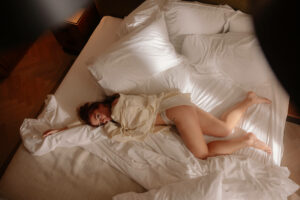We are told so many times that life is a path that sometimes we take for granted, but the essence of this “journey” lies in its unpredictability and, above all, in the discoveries we make along the way. That makes us change, grow, see the world with different eyes, and being seen FROM the world.
That’s what Aya Mohamed reminded us, and she does so every day through her channels and her social activism: she reminds us to accept and appreciate ourselves, both for our physical appearance and for our choices, ideals and causes that we decide to defend, even if it is not easy, it never is.
But it also tells us that, step by step, we find our own identity, not the one that someone else imposes on us, but our own, which we express and defend as we want. Aya retraced with us the most important steps of her journey, between Italy and Egypt, spirituality, consistency, resistance, normalization of change, and awareness.
To understand, learn about, express, appreciate both ourselves and others.
If you think about your childhood, what memories come to your mind? Was it a happy time of your life?
I define happiness as inner peace, so, I think, more than peace intended as “serenity,” it was peace intended as “amusement.” I’ve had a very amusing childhood, it was active, interesting, a sort of constellation of multicultural experiences between going to Egypt and being here: that was very special, very interesting.
What about your adolescence?
Maybe my adolescence was a bit tougher, on one hand, because I had lots of responsibilities, on the other hand, because, I think, all second-generation young people, above all, find themselves having to deal with this identity dilemma for which you don’t know who you are, where you belong, which group you’re a member of; you don’t belong to any group as in Egypt they see you as an Italian girl, and in Italy, you’re an Egyptian girl. I don’t live in Egypt, I don’t know the place, I’m basically like a tourist, I have a house there, I have my cousins, my grandparents, my uncles and aunts, but if you say to me, “do you want to go grocery shopping?”, I’ll answer, “on my own? Where should I go?” [laughs], also because Google Maps there doesn’t work exactly like it works here…
It’s a bit like it’s the others who give you your identity during your adolescence, and I understood this afterward, that it’s not the others who should label you, and it was essential for me to understand that. Also, as far as my relationship with my body is concerned: when I was a teenager, I had a very struggled, difficult relationship with my body because I felt like I had to meet other people’s standards. For example, I was 18 when I decided to wear the veil; the moment I started wearing the veil, one of the various contributory factors was to realize that my body is mine, I’m the one who decides the standards for me, I don’t have to fit into anybody’s standard, and there I started this process of not only acceptance but also of appreciation of my body.
Today, I’m happy to say that I have a wonderful relationship with my body, that I love my body, that I like my body, precisely because I have the power over it, I decide for it, I live in it, it’s not a body that has to live under the gaze of others, but it has to be accepted by my own gaze.
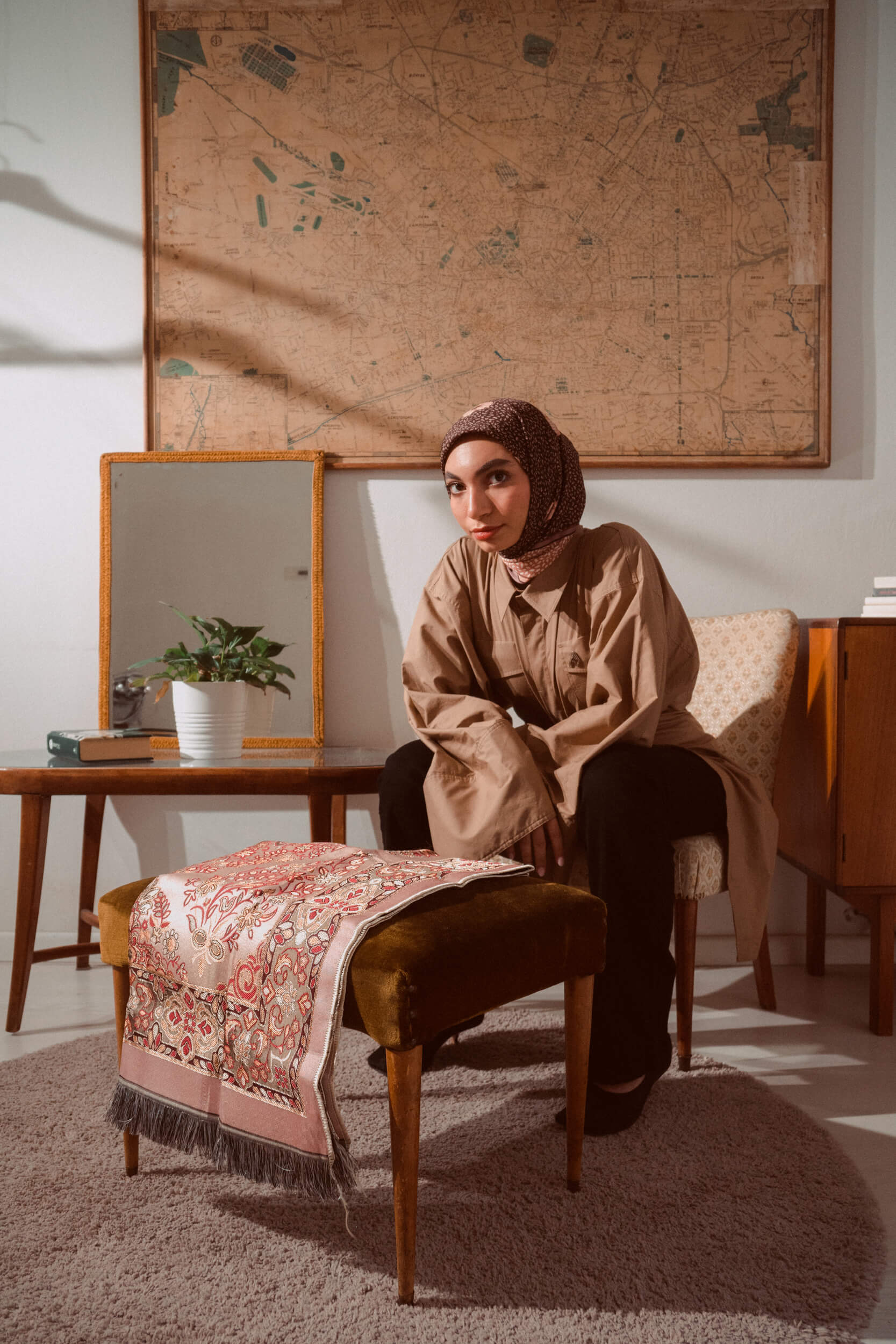
“It’s a bit like it’s the others who give you your identity during your adolescence, and I understood this afterward, that it’s not the others who should label you, and it was essential for me to understand that.”
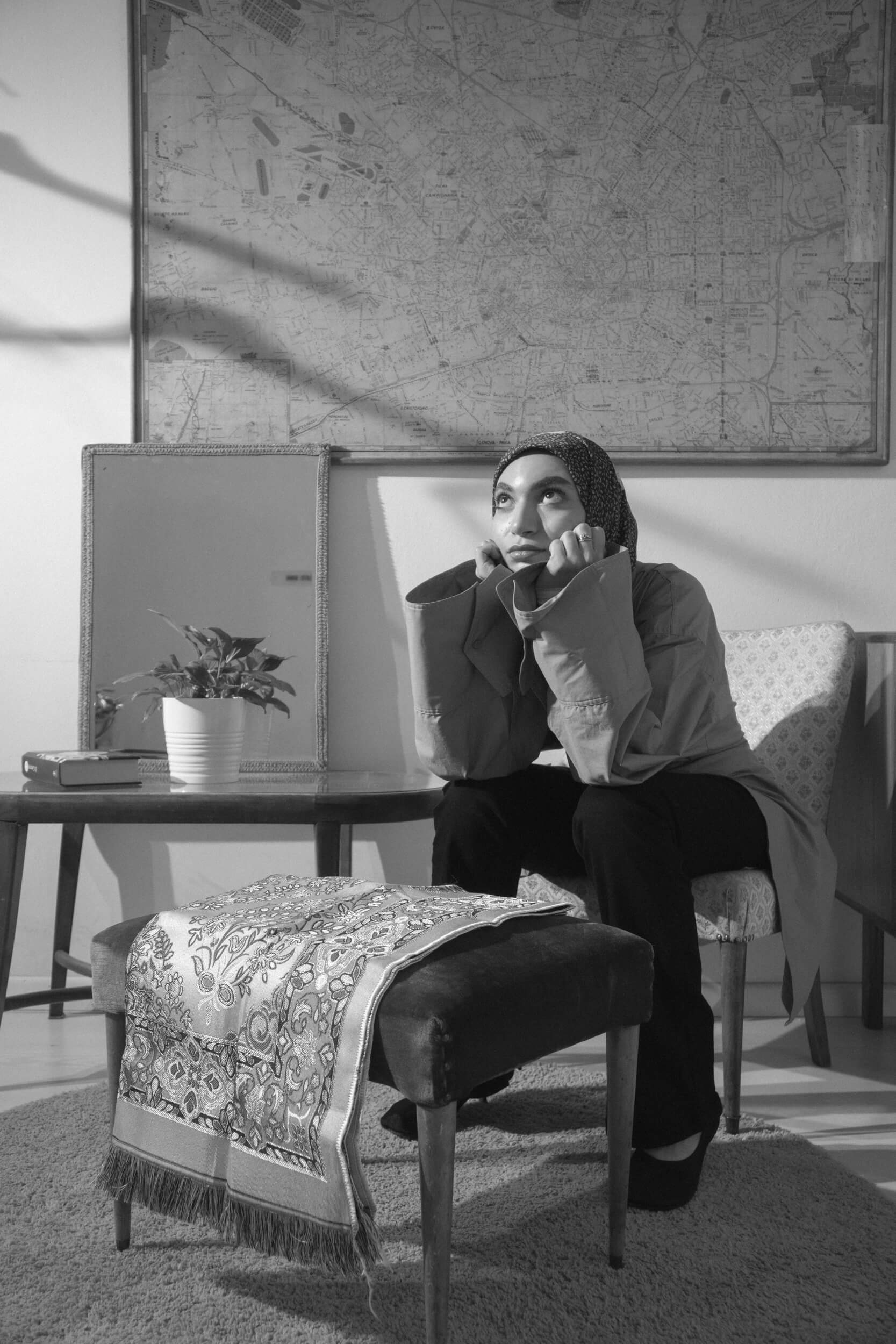
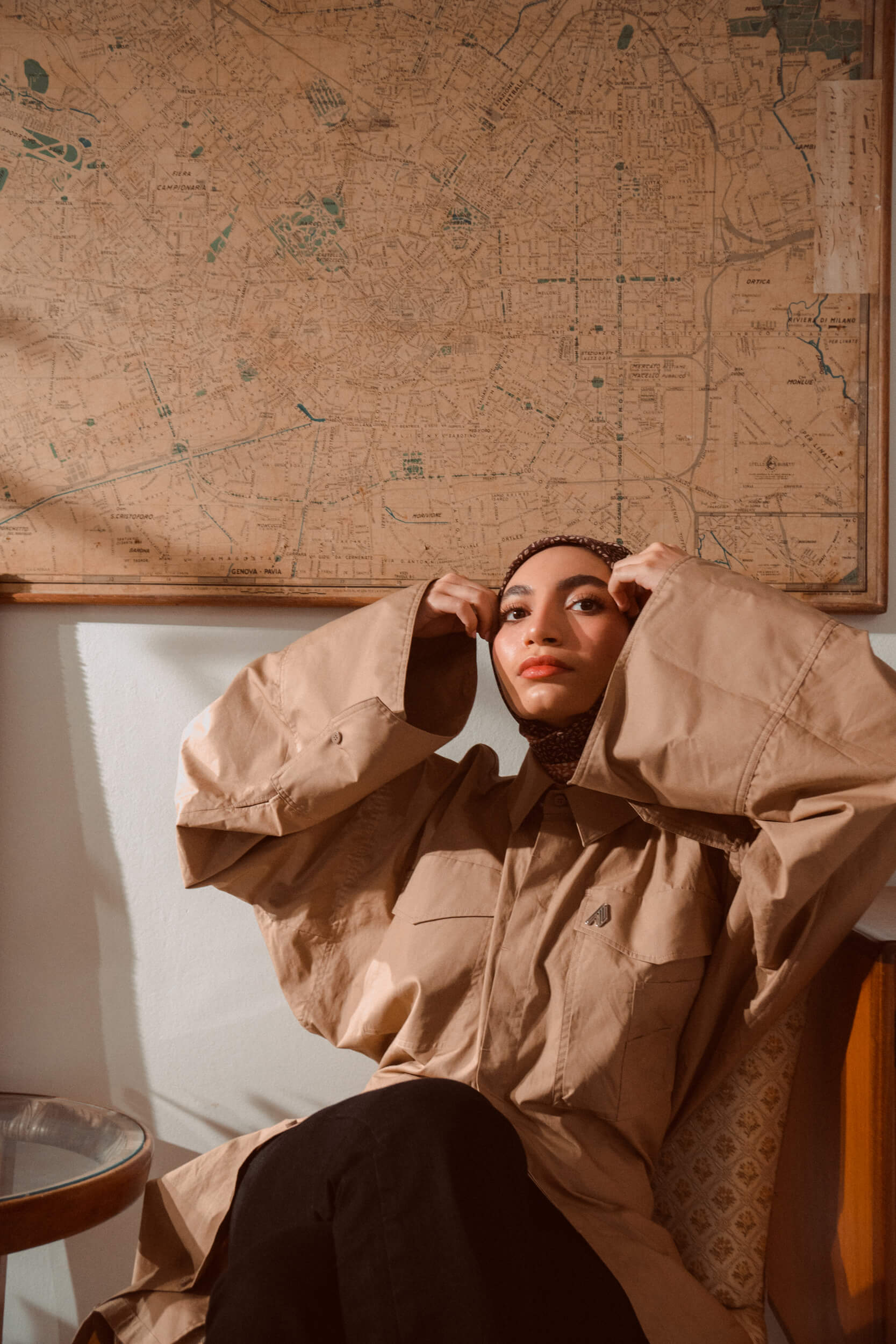
“The moment I started wearing the veil, one of the various contributory factors was to realize that my body is mine, I’m the one who decides the standards for me, I don’t have to fit into anybody’s standard, and there I started this process of not only acceptance but also of appreciation of my body.”
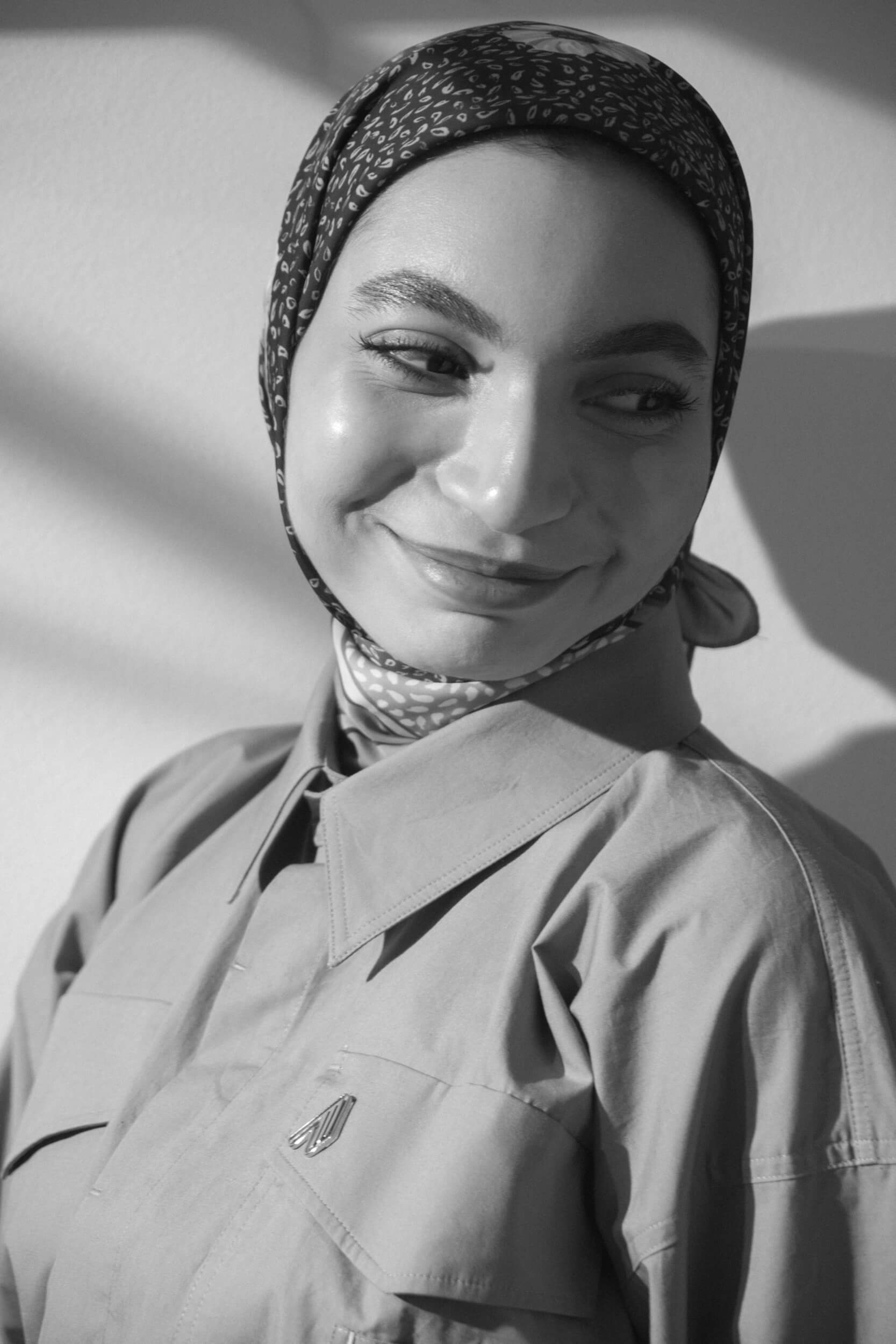
Which is very hard, acceptance. What you’re saying is really powerful, you’ve done an excellent job, maybe also the fact that you’ve started wearing the veil, together with the rest, has given you a greater force and better awareness.
Exactly, in fact, wearing the veil was a moment of revelation to me, I thought “okay, I understood who I am” and this gave me a lot of power because I’ve always had this passion for fashion, ever since I was a child, and every six months I looked like a completely different person, from my haircut – I went from red hair, to shaved head, to short hair like the boys with spiked hair, I tried everything, anything – to my style, I’ve always been very boyish, but I used to shift between the skater boy and the rapper boy, always completely different styles. I was looking for my identity, I guess, and when I started wearing the veil I thought, “I know who I am, this is my identity.” Now, I think I’m in a phase in which my identity is so prominent that it’s extremely flexible: I could go from being totally boyish one day to being totally girlish the next one, and this doesn’t cancel my identity, it’s always me.
Was there a moment, when you decided to wear the veil, maybe at the beginning, in which you struggled a little bit?
The hardest part was not the beginning because, initially, I was in this stage of falling in love with this new version of me, but it was, maybe, a bit further on, after a few months, when I felt like I had put the veil on, but removed a veil from my eyes and discovered all the discriminations that occur in our society. Before I started wearing the veil, I looked like any other girl when I walked the streets, but, from that moment on, I started noticing things that I hadn’t noticed before, non-benevolent looks, comments, discriminations, acts of bullying both by students and teachers, also on the workplace, almost every day, I get messages from girls who can’t find a job because they wear the veil. So, that was a hard time, perhaps.
Then, unfortunately, there’s so little awareness, education, information about Islam, in general, Muslims, so every time you hear about some terroristic attack at the hand of someone who declares themselves a Muslim, then you start being afraid to go outside because people are obviously scared and translate their fear into hatred, so you become a target of that hatred if you wear the veil. That’s the hardest part, I believe.
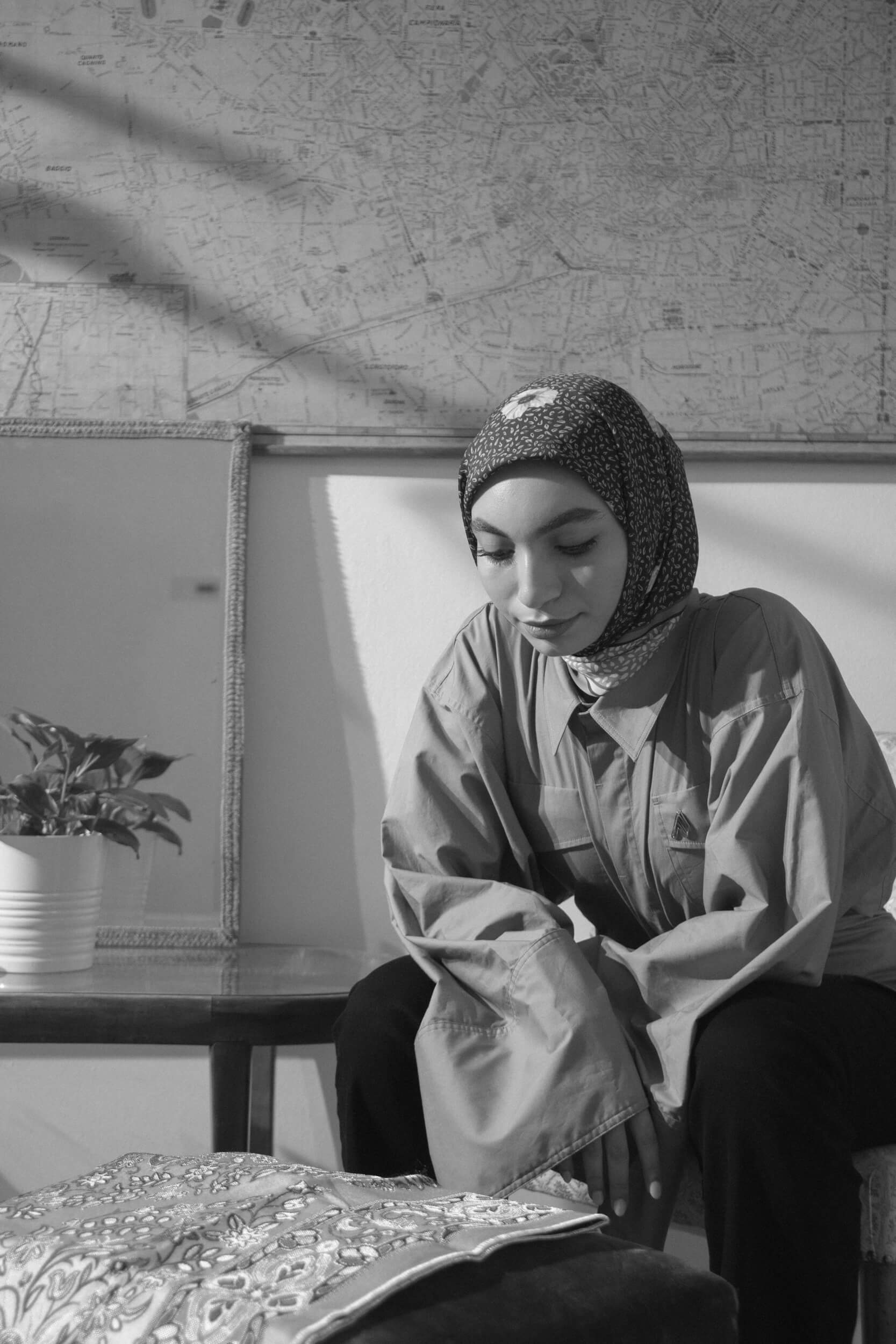
“Now, I think I’m in a phase in which my identity is so prominent that it’s extremely flexible.”
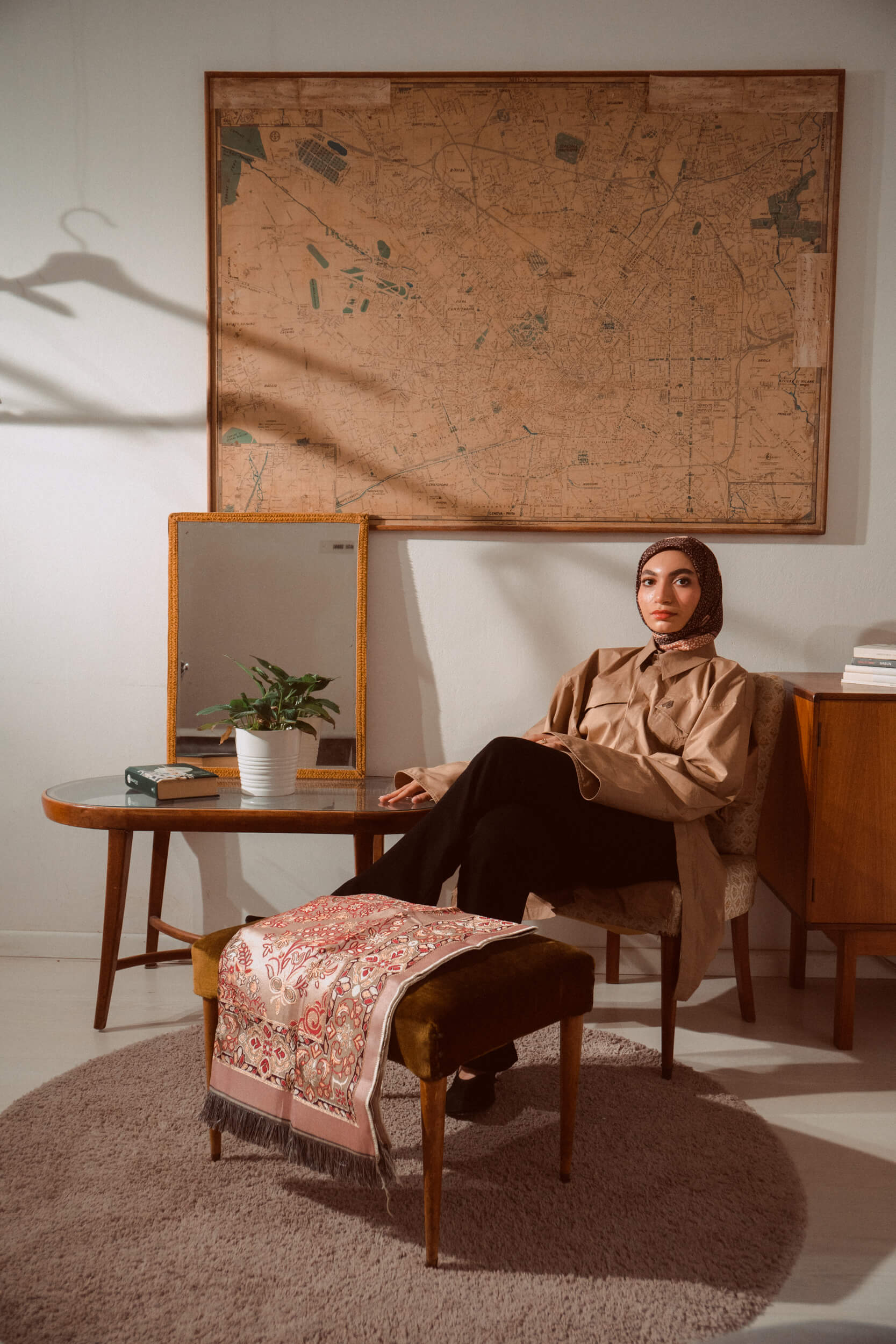
It’s all about empathy, about understanding that there’s a human being in front of you. If people just started to go beyond, the situation would be different.
Right, for example, that story about the proposal to ban the veil in France and the people who are voting. The people who justify this ban with national security, could they just explain to me how could a 15-year-old girl possibly be a security threat? In France, the age of consent for sexual intercourse is 15, so at the age of 16 a girl can become a mother but she can’t cover her hair, she can’t wear the veil because she’d represent a threat to the State. How is this possible? This is what I don’t understand. There’s no threat, it’s simply a form of oppression.
It’s exactly a form of oppression because it’s terrifying how they turn the blame for everything into a cultural factor…
Now, let’s see whether it shall really pass or not, I hope not…
Do you have any routine, something you always do, maybe in the morning or evening?
I really love routines, but the thing is that my days are all different from each other, and the only moments in which I manage to follow my routine a bit are, precisely, the morning and the evening. Usually, my routine is made of skincare and spiritual moments, so I pray before bed or when I wake up in the morning and, usually, before going to bed, I also read a bit of Qur’an, just a few pages, especially when Ramadan is about to begin, I try and make this spiritual moment last a bit longer. That’s what my routine is about.
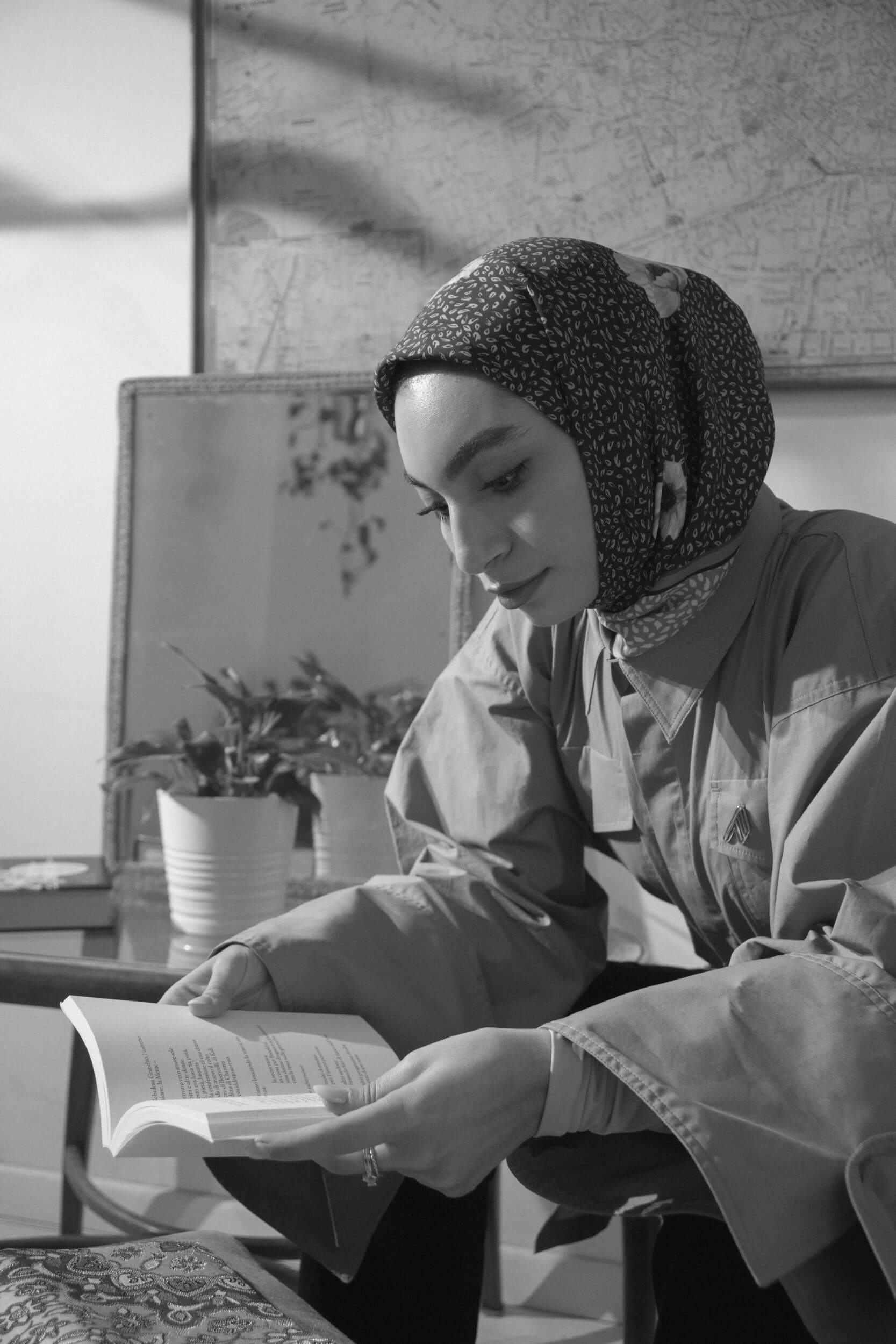
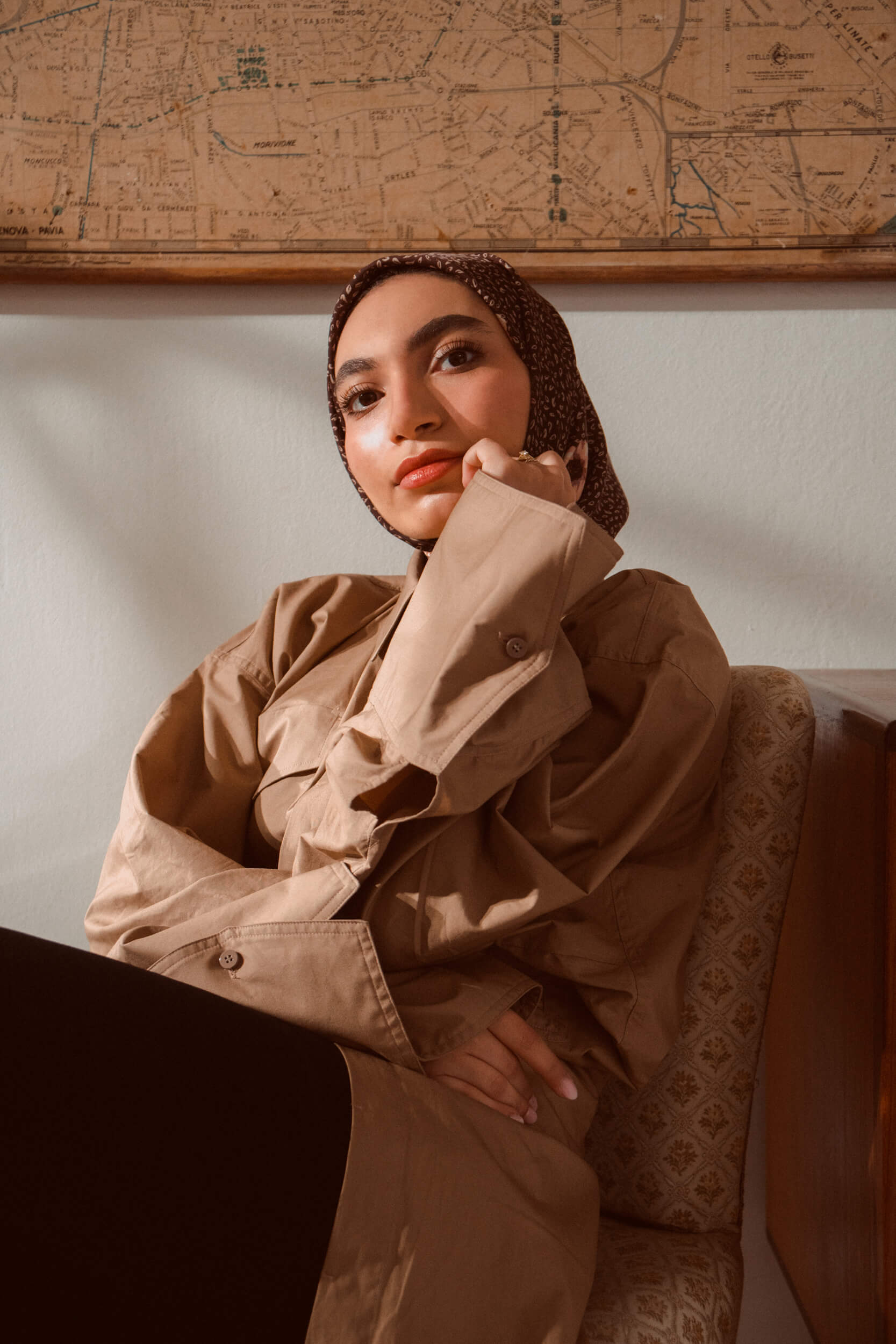
Do you ever feel or have you ever felt lonely? How have you handled and overcome loneliness?
I think that my loneliness is not of a physical kind, but rather a kind of loneliness that occurs during a difficult time, maybe, because I’m someone who can totally put up with loneliness, in the sense that I’m fine when I’m physically alone. The times in which I feel overwhelmed and I can’t handle what’s surrounding me, that’s when I feel lonely because I don’t have anyone who could help me solve my problems, in a way.
However, I think that the luck of those who are spiritual or religious is that, if you stop and calm down for a while, they realize they’re not actually completely alone; I am Muslim, I believe in God, so at the beginning of everything there is God, and so I’m never really alone, even in difficult times, that’s enough to find consolation in that, at least for me. I know it sounds a bit cliché, but it has truly helped me: to stop anything I’m doing in a moment of loneliness and, maybe, open my Qur’an and read it or pray, that helps me not to feel lonely.
I personally wouldn’t give that for granted, instead, I’d call it “luck,” even though it’s not just that, it’s also a decision, it’s also a journey, it’s bravery, but it’s beautiful, I think, when you can believe so much in something.
I think it’s luck, too, but I also think that, like you said, it takes a lot of courage. My parents brought me up teaching me the Islamic traditions, but during those teenage years in which I’ve felt really insecure about my identity, a very important factor to me, besides the fact that I am both Italian and Egyptian, was religion, and at that moment I got closer to Islam and decided to wear the veil right because, beforehand, I was experiencing a moment of self-discovery and I had lots of doubts about this religion, and I wanted to understand whether it really did belong with me or not.
So, you take your life with lots of courage, you face your own self because, in the end, it’s a journey inside yourself, you get to question who you are. However, I think that we all have some level of spirituality inside, some have a lower level, others have a higher one; reading the horoscope is spirituality, too, or the healing stones, that’s spirituality, as well as believing in the universe: spirituality is not necessarily followed by religion, but it’s believing in the soul, in karma, in the world, and each one of us, I think, has their own level of spirituality, and that’s really nice.
What makes you feel safe?
Feeling a sense of peace, both inside and around me, whether it is silence and tranquility, or knowing that there are people who have my back, who support me, who are there for me, whether it is my family or my friends.
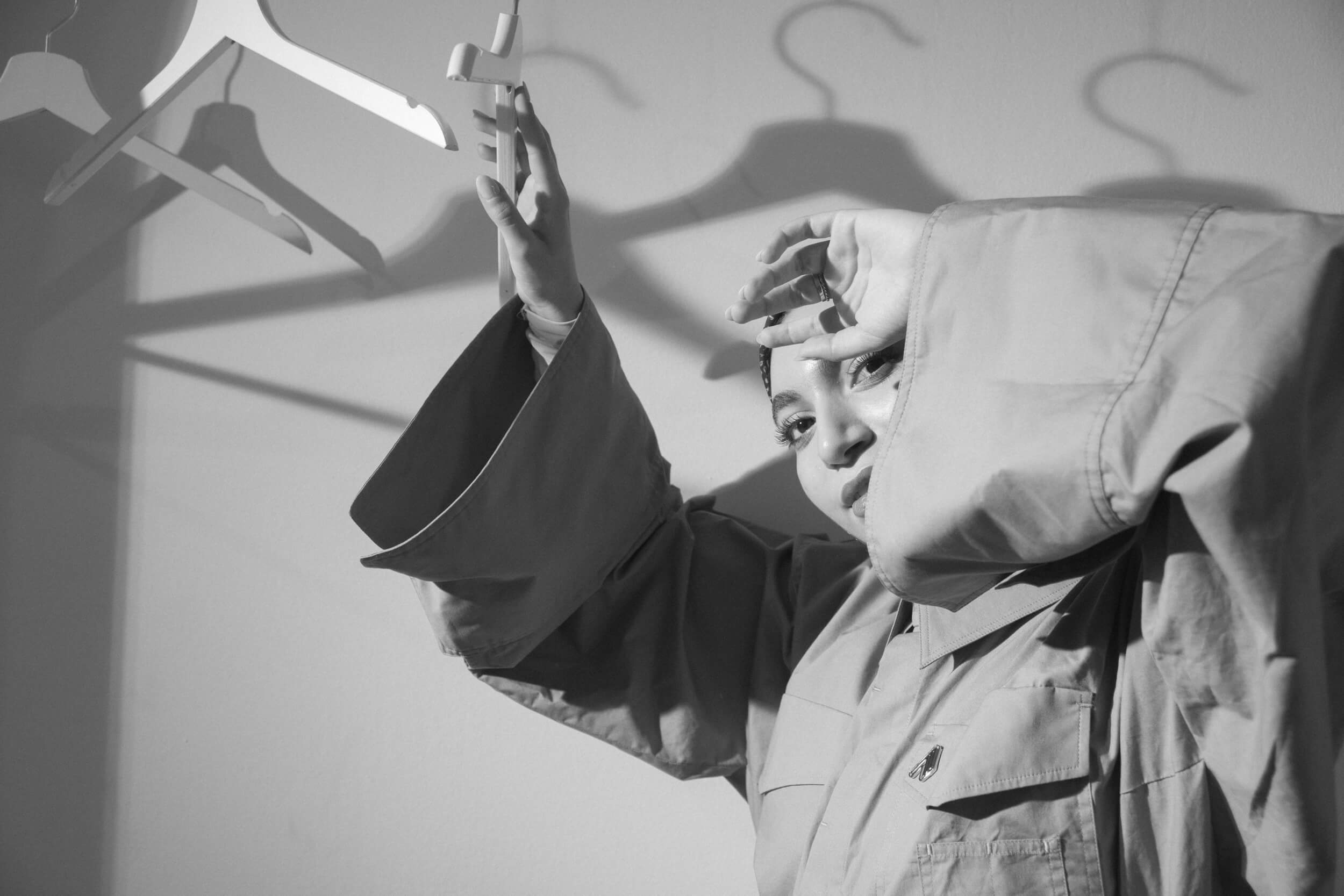
“Spirituality is not necessarily followed by religion, but it’s believing in the soul, in karma, in the world, and each one of us, I think, has their own level of spirituality, and that’s really nice.”
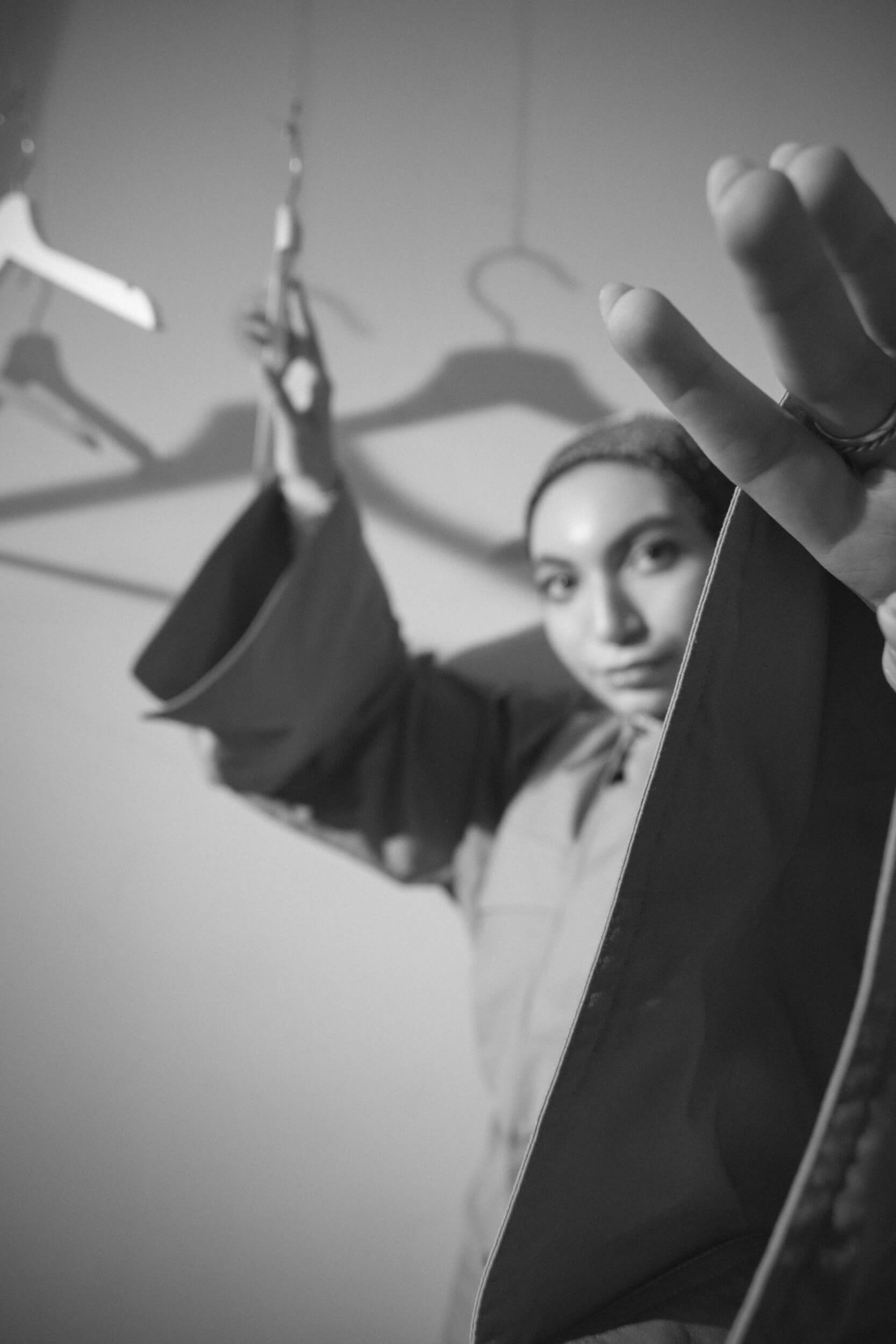
You’ve also talked about having been bullied. Was there an evolution of violence, in your life, both physical and mental? As of today, has your way of reacting to things, of responding to violence, changed in any way?
There are so many definitions of violence, expressions, each one expresses violence in a different way… I think that at the root of violence there’s some kind of malaise, and it takes a huge inner work to understand that the violence a person is showing comes from a place of deep pain. If five or ten years ago you’d have told me that today I would have said this sentence, I wouldn’t have believed you because, as a kid, I’ve always been someone who thought black-and-white, like “you’re a bad person because you’re a violent person;” even as far as bullying is concerned, verbal violence, emotional violence, the emotional one can destroy you, I think, it really hurts you, and that’s maybe the one I’ve suffered the most at school, during my teenage years.
Once, I was walking down some street, eating ice cream with two friends of mine, one of them was wearing the veil, and a man started shouting at us: I froze, while my friends answered back, I was just too shocked by all the insults. That’s violence too, obviously, however, over the past year, I’ve started realizing that even a violent person who hurts other people in front of us is human, as hard as it can be because, sometimes, it’s really hard to be able to empathize with someone who’s hurting us, it takes a huge effort to understand that that violence comes from actual pain.
If you were to tell what you’ve understood of the world, today, what would you say?
I’m a very positive person, but I’m about to say something very negative. One thing I’ve understood is that you can’t end injustice: we do activism every day, we spread awareness, use our voice to talk about racism, xenophobia, homophobia, transphobia, discrimination, violence, but what’s the ultimate goal? Sometimes, I find myself thinking that, all right, I’m doing all this, maybe something will change if we do it all together, but there will never be an end. Perhaps, this is what I’ve understood.
However, if there will always be people like you, doing what you are doing, they could give someone else hope…
Exactly, and that’s the reason why we need to keep on doing this. However, I used to be more “aggressive,” in the sense that I was way more passionate when doing this kind of things, which doesn’t mean that I am no more, but the thing is that I’ve always thought you could reach a higher level, and I believe that we’re going to reach a higher level, absolutely, but we also need to settle for the small victories, in a way. For example, if this Zan law should pass, it would be a huge victory, it wouldn’t end homotransphobia, but it would be a victory to start from.
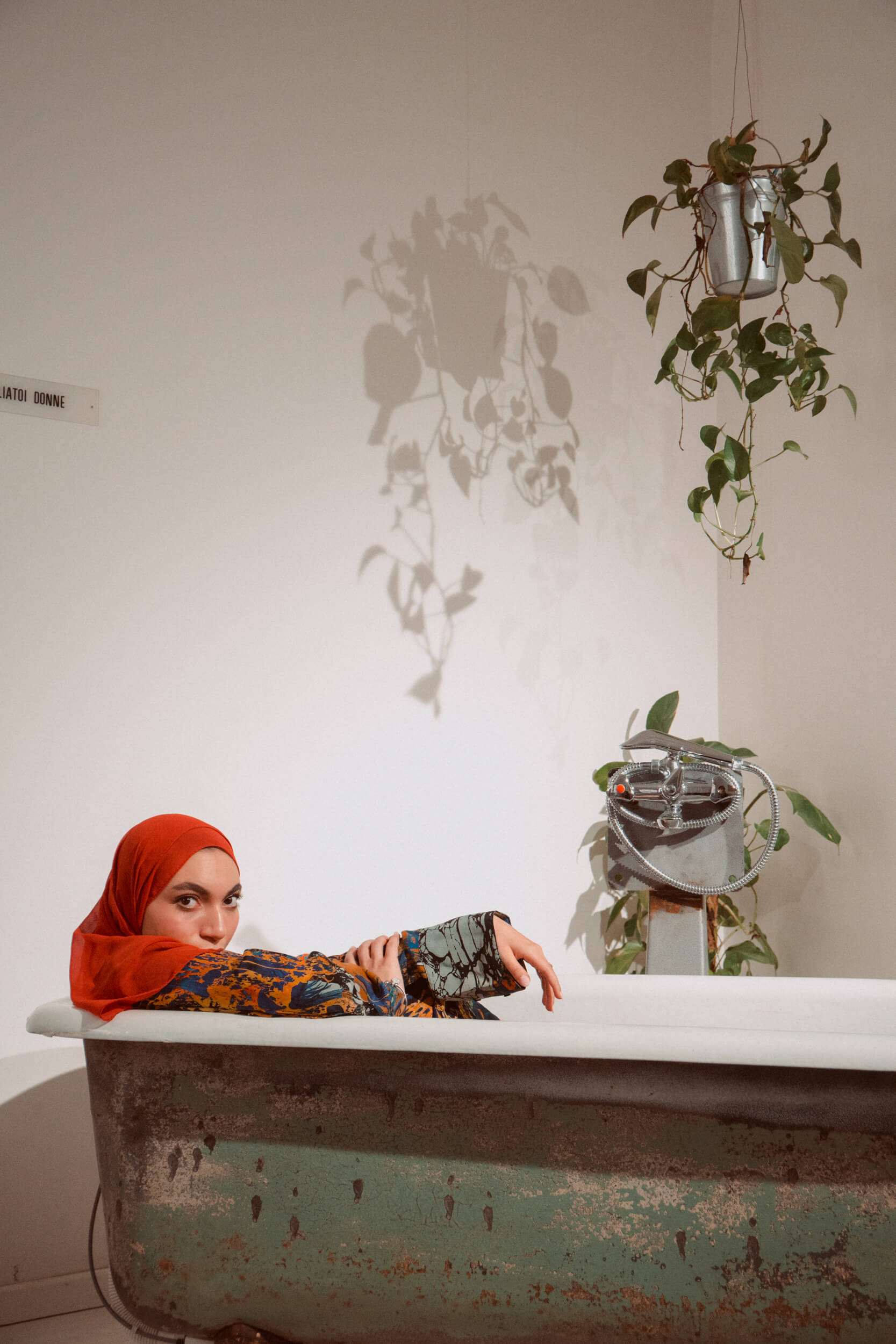
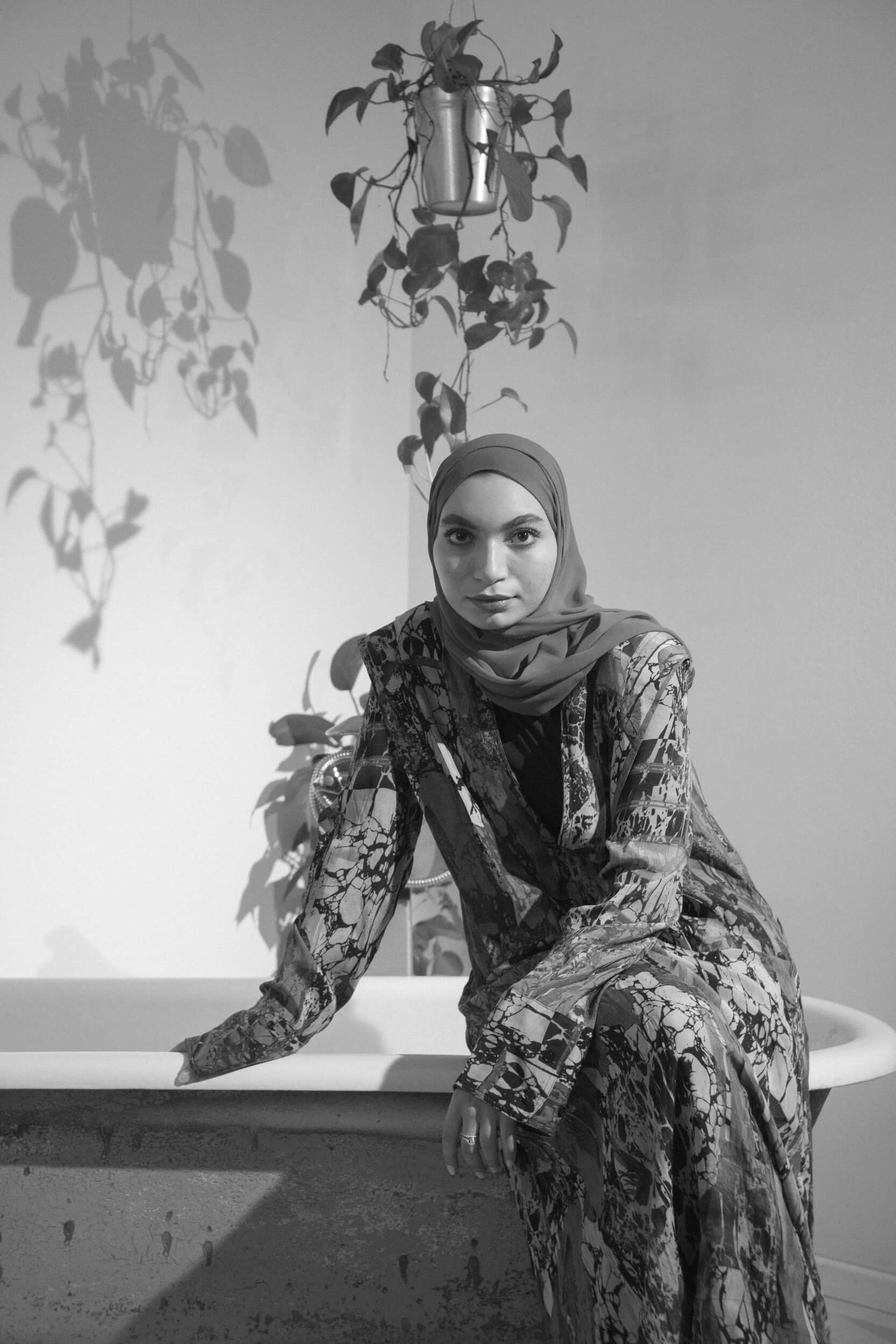
“It’s really hard to be able to empathize with someone who’s hurting us, it takes a huge effort to understand that that violence comes from actual pain.“
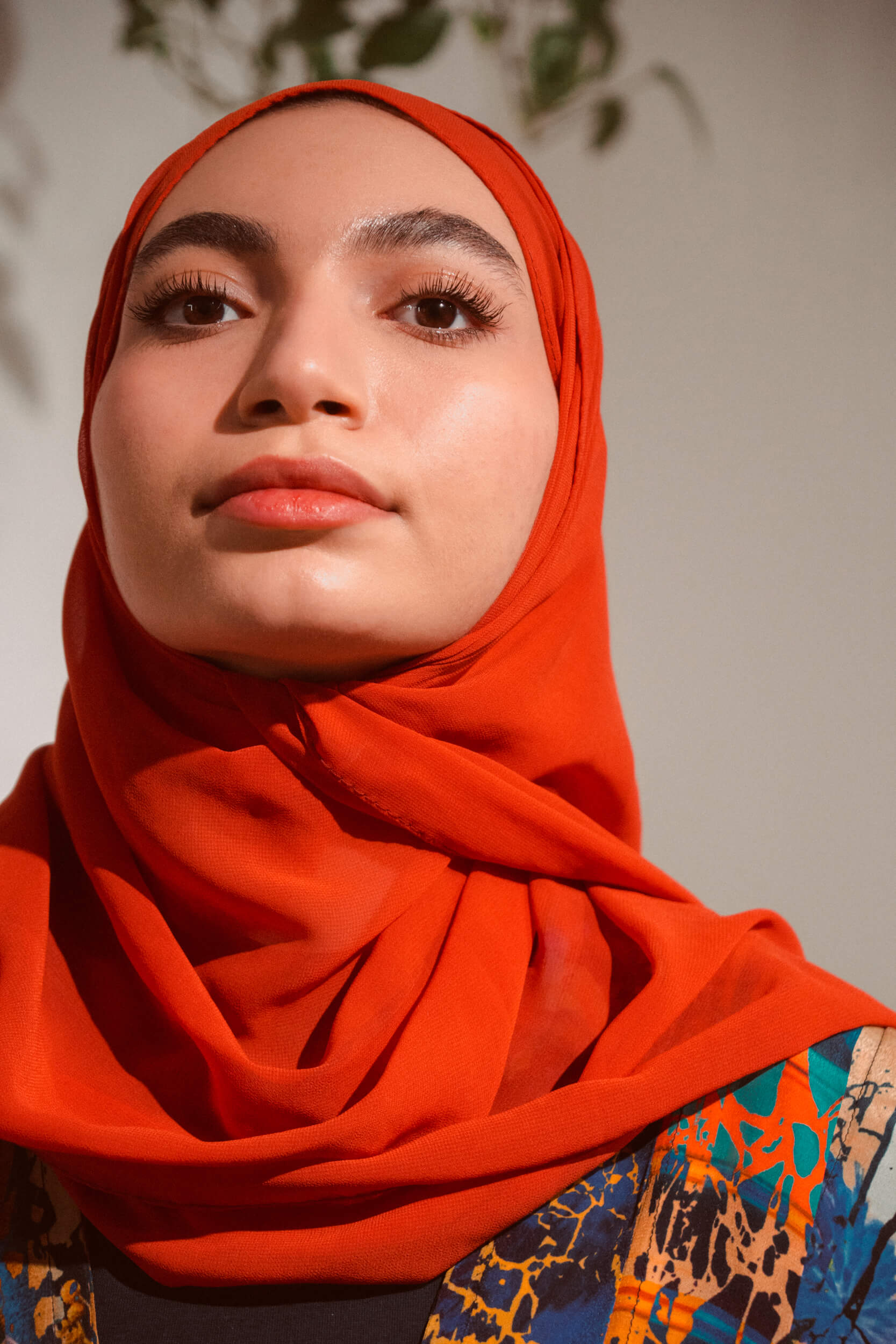
What’s the place in which you feel the happiest and the one you feel the least comfortable in?
The places in which I feel the least comfortable, more than physical places, are places of common thinking, like when someone says to me: “Your Italian is so good!”. Or one time, I was on set, and the makeup artist said to me, “You look like the Madonna!” [laughs]. These things make me feel neither sad nor happy, but just uncomfortable, also because there’s no bad intention behind it.
The place in which I feel the happiest, instead, is a physical place: every time I go to Egypt, I’m always happy because I live here, in Italy, more than 90% of the time, and it’s my home, so every time I go to Egypt is like a holiday to me, a time to have fun, to go out with my cousins, it’s a bit like I go back to exploring my roots as if they had been taken from me, so there’s that reconnection, that call; so I spend those three weeks going back to living a version of myself that belongs to me, anyway, that in this society, maybe, I can’t live because, Covid aside, there are no venues where Arab, Egyptian, etc. kids can go, where you can eat typical food or stuff like that, so that’s nice, too.
The best “fuck you” of your life?
Here it is, this question makes me laugh!
When I reach my goals, I obviously reach them for myself; however, thinking back to the goals I’ve already reached, I still have a long way to go, but also, for example, thinking about the fact that, three years ago I was in a workplace where I’d just begun, and some people made fun of social media, and now these same people get in touch with me to ask me to promote their things… I’ve never said “fuck you” directly to them, but it seems to me like a very interesting story development.
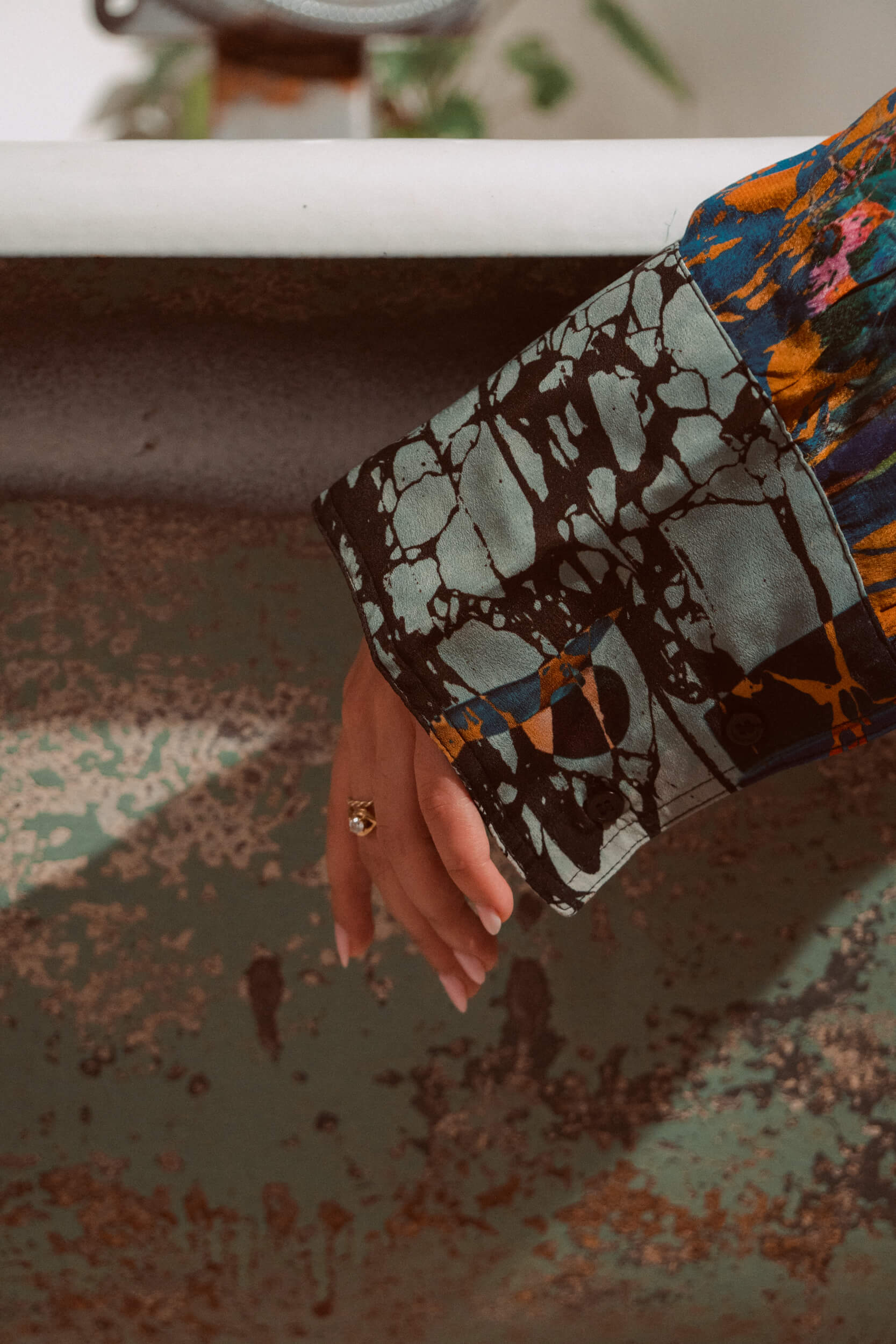
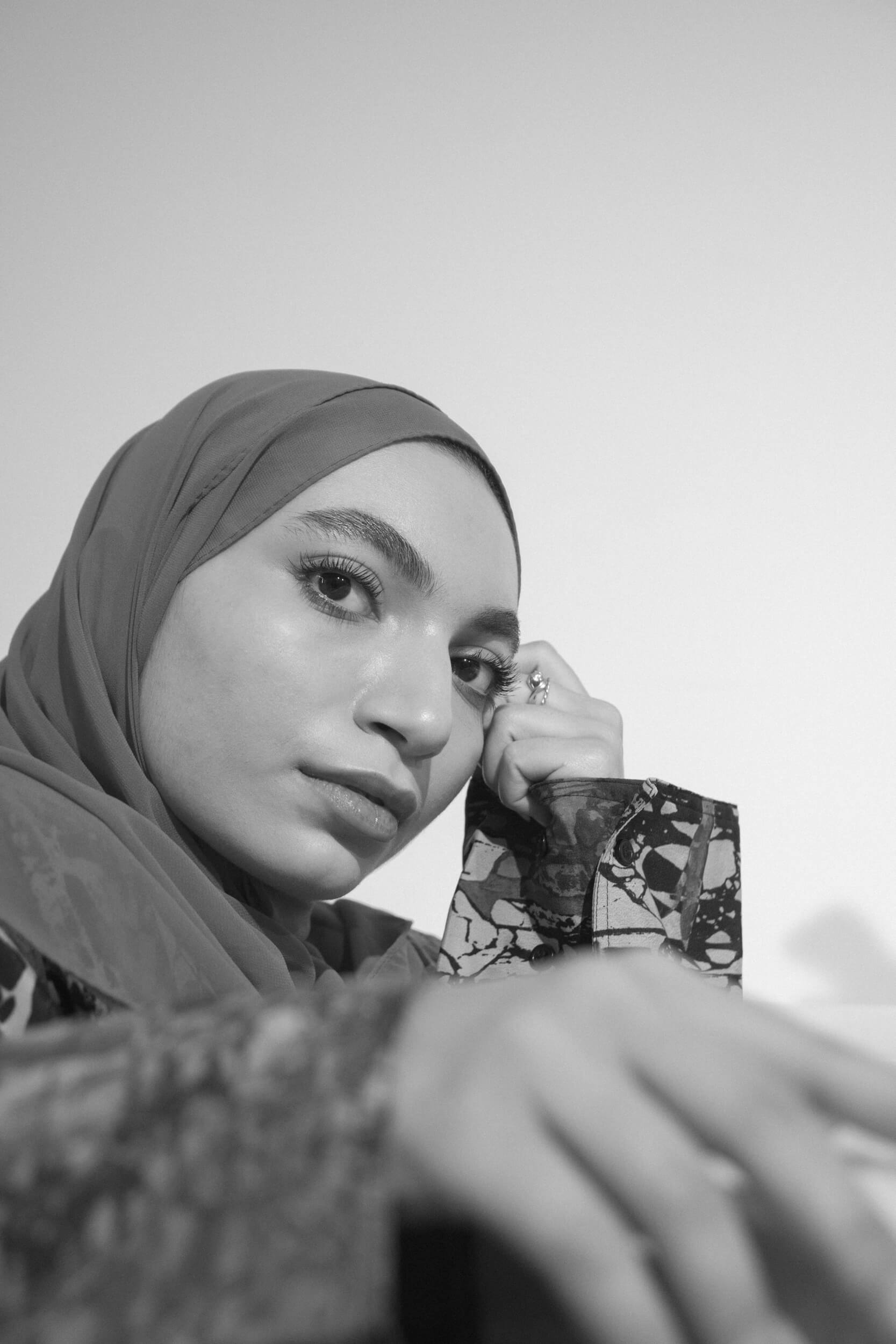
How important is it, to you, to be true to yourself? Are there times in which you think it’s important not to be consistent, instead?
I think it’s very important, however, there are two factors. Number one: the most important thing, to me, more than being true to myself, is having a clear conscience, so I wonder: am I sticking to my ethics and my values? Yes or no? This thing I’m doing, does it go against my values, against my ethics, against my beliefs? If so, then why am I doing it? If not, I just keep going.
So, even though, maybe, it’s something I don’t feel as totally consistent with myself, but it still respects my beliefs and my values, I’m fine with it. Number two: I think we should start normalizing change, change is growth, is evolution, it’s a positive thing; as I was telling you before, ten years ago, five years ago, I used to see things a bit more in black and white, then I’ve started understanding that there’s also grey, and today I’m a rainbow of colors. We must normalize change. Just try and imagine someone who, at the age of 50, has the same ideas they had when they were 20… it’s crazy!
Sure, some people just flaunt consistency as a fundamental value… Of course, you must be true to yourself, to your values, but evolution is necessary, otherwise, we would all be stationary and, probably, some of the people who have violent attitudes are people who just can’t evolve in that way because they’ve stopped in front of something they’ve heard or suffered.
For example, I’m thinking about a Netflix TV show, “Sex Education,” where there’s this guy who bullies a gay boy, but he does so because, deep within himself, he’s insecure about his own masculinity. So, the moment you overcome toxic masculinity, or inner traumas, or whatever it is, I think you can start growing up.
What’s the latest thing you’ve discovered about yourself?
I’ve always believed I’m a very strong and responsible person, but the latest thing I’ve discovered about myself is how much I’m able to resist. I’ve always thought I’m strong, but I’ve never challenged my own strength to see what its limits are, while over the past two months I’ve discovered that I’m way stronger than what I expected.
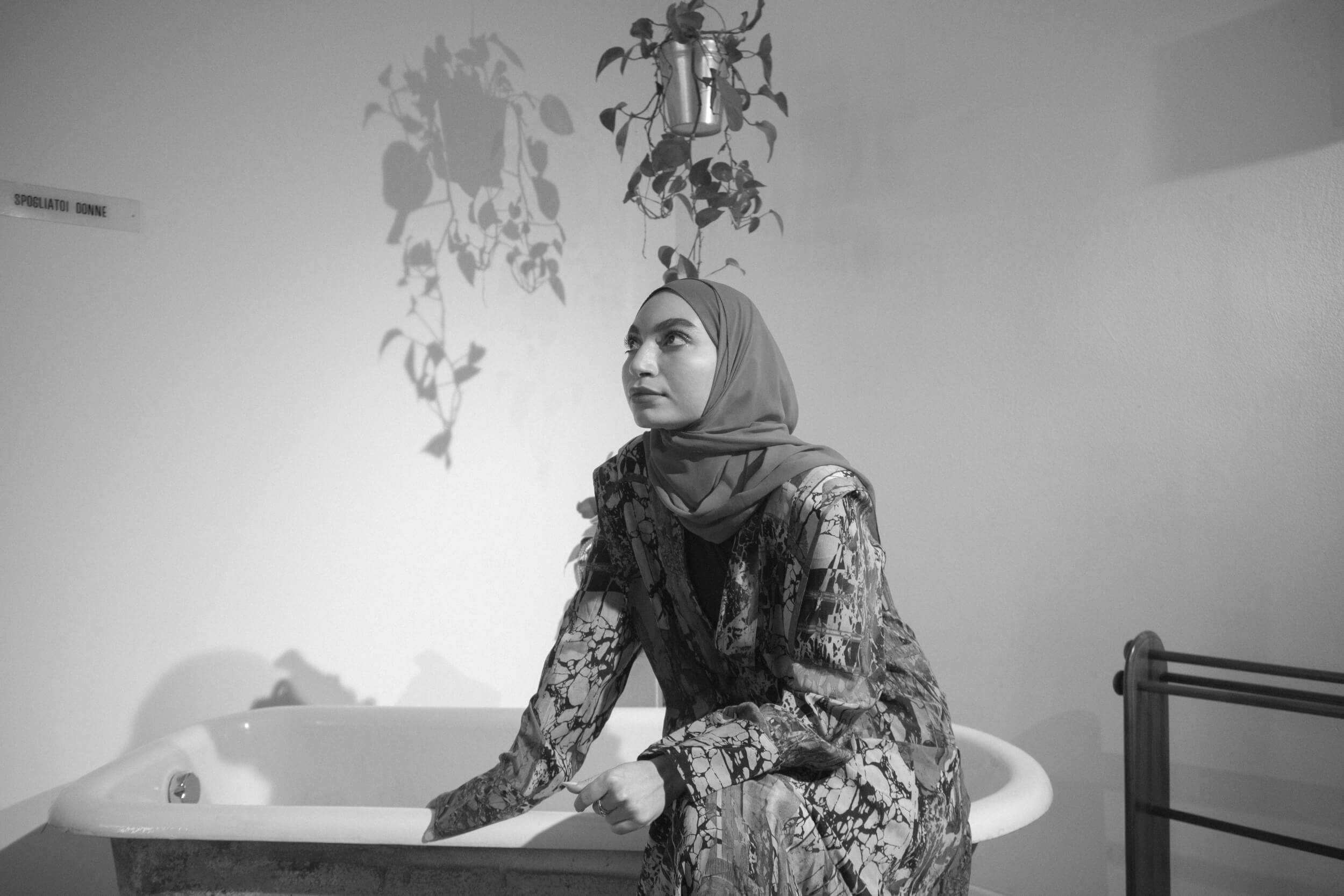
“I think we should start normalizing change, change is growth, is evolution, it’s a positive thing.”
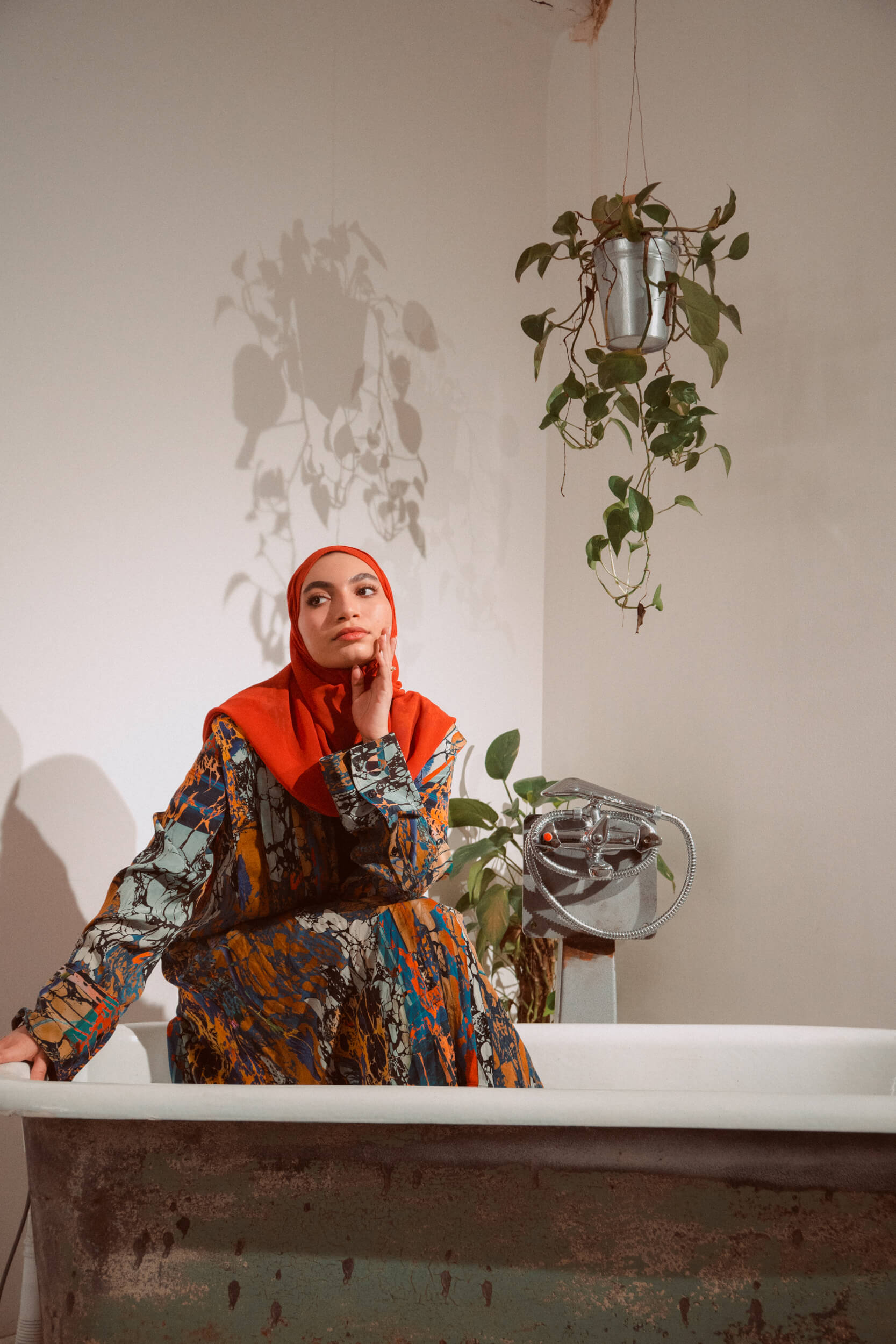
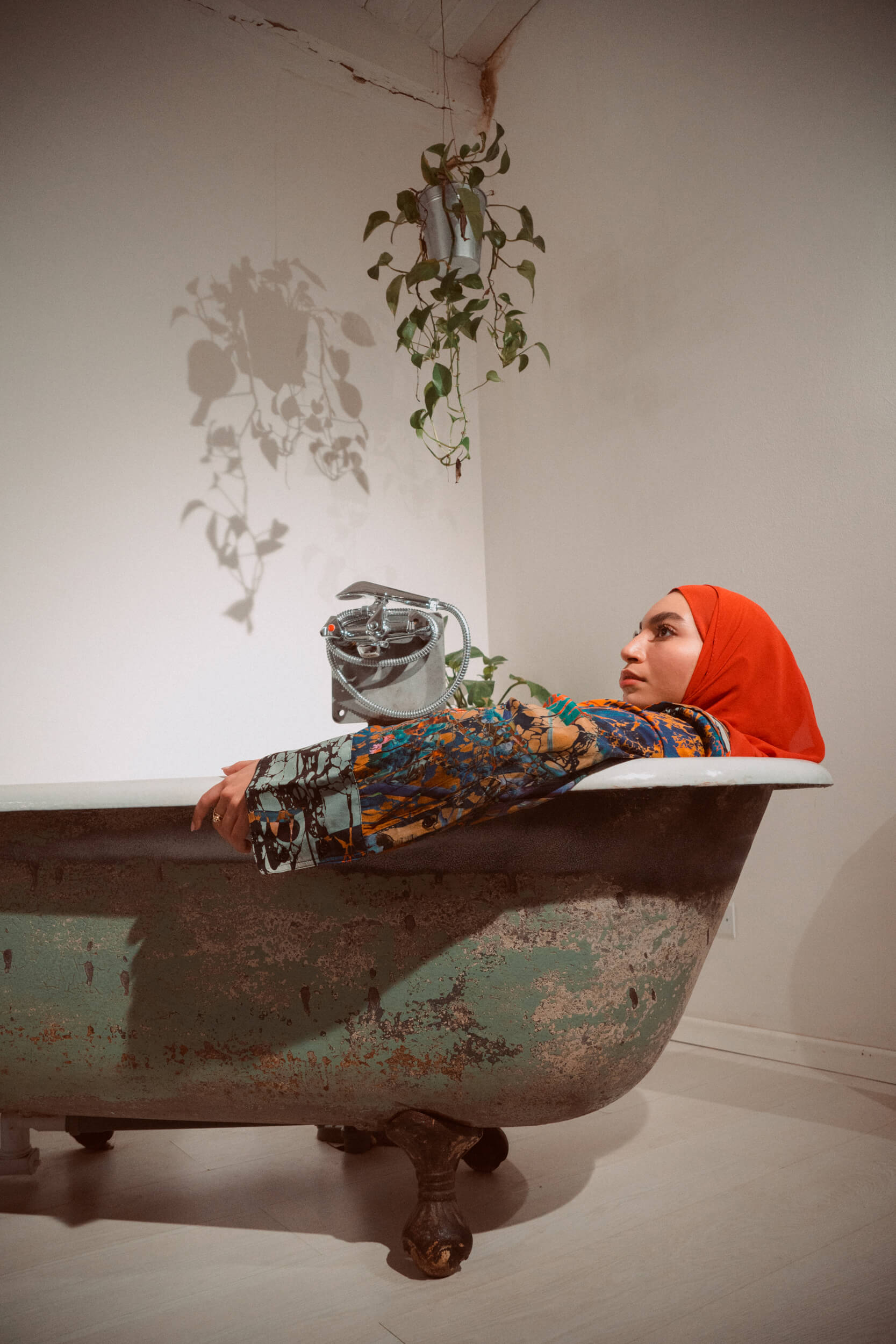
What would you call essential in your everyday life?
I think that, with this pandemic, many of us have recalibrated our thoughts about this. Our priorities have been readjusted and, for me, my daily priorities are God, my family, and feeling good with myself. Sometimes, I find myself wondering “are you okay?” in English – I don’t know why, but sometimes I think in English – and answering myself “yes” or “no,” and if the answer is no, I wonder, “All right, what do I need to feel okay? Am I in a bad mood, or is it just that I haven’t eaten and I need sugar?”.
What does it mean, to you, to feel or be sensual?
As I was telling you before, I’ve worked hard to get to accept and, later, appreciate my body, and I think we should all learn to do that, especially women because our body is always so exploited and oppressed, even on a legal level, that everything is taken away from us as if it wasn’t even ours, and that’s something we, then, negatively pour upon ourselves. So, to me, being sensual means having the power over your own body, feeling that physical empowerment, finding beauty in our body, even though maybe it has some flaws we don’t like, but if they’re things that we can change, then we change them, if we can’t change them, we should learn to love them, accept them.
Sensuality is just having the power over your body, I think, an intimate, personal power, something between myself and my body, to be able to enjoy life, and if you think that our bodies have made us survive a pandemic… It’s not the first thing that comes to your mind if you think about sensuality, but sensuality to me is also a synonym for power, even a woman covered from head to toe can be sensual if she has that kind of self–confidence, that inner empowerment.
In my opinion, the most attractive women, the most sensual of all, are the self-confident women, those who have that wonderful power of feeling confident and showing it, whatever their shape, weight, nose are.
Every time I see a beautiful girl, I let her know, I stop the girl in the street and tell her, “Anyway, you’re beautiful,” or “I love your shoes,” “I love your makeup,” “I love your hair,” or whatever. I do that because I know it will make her feel good because it would make me feel good, so this circle originates.
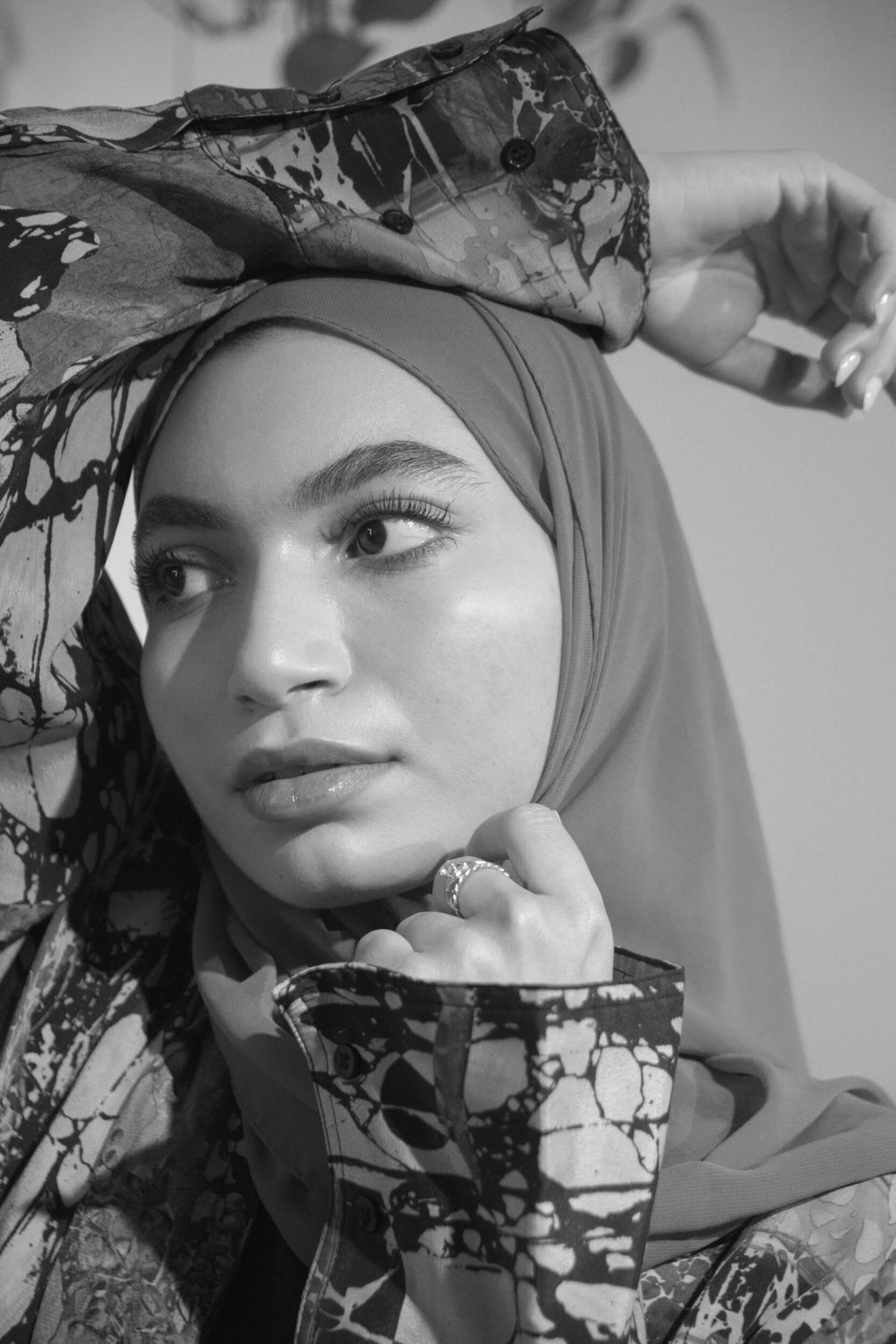
Speaking of depression, instead, have you ever suffered from it, have you ever dealt with it in your life?
I think I have. I don’t really talk about private, personal stuff on social media, but who has never experienced depression, on different levels? I think I have, I think that there are people who can fully defeat it, and people who experience more of a wave going up and down, and when it goes down, they feel good, when it goes up, they feel a bit less good. Right now, I’m fine, I’m not in a wave, but it takes a lot of courage, I guess, or, more than courage, you need to find out what gives you strength. Each one of us can have different reasons to be strong, but we all need to find that thing that nudges us.
What is it for you?
It depends on the moment. It’s different every time, but I think that the most important things, above all, are my family and my faith.
Do you have a favorite author?
I don’t, but my favorite book is “Why Nations Fail:” if you have a conversation with someone and ask them “why do you think some nations have succeeded and others have failed?,” you start listing a few points, perhaps because they’re located in some specific geographical or economical areas; the author focuses on each point and analyzes it to eventually get to the conclusion, and I think it’s a really beautiful book and accessible to everyone, even to those who have no political preparation, and it’s very light compared to others.
What about the book you’re currently reading?
The book I’m currently reading is by Nadeesha [Uyangoda], who’s Instagram name is @the.nuardian, and it’s called “The Only Black Person in the Room,” a really good book. About a year ago, she wrote an article for Not magazine entitled “The only black person in the room,” discussing the difficulties you experience when you’re in an environment that doesn’t fully understand what you’re going through, also at an institutional level. She tackles the topic of systemic racism in Italy, it’s a really good book.
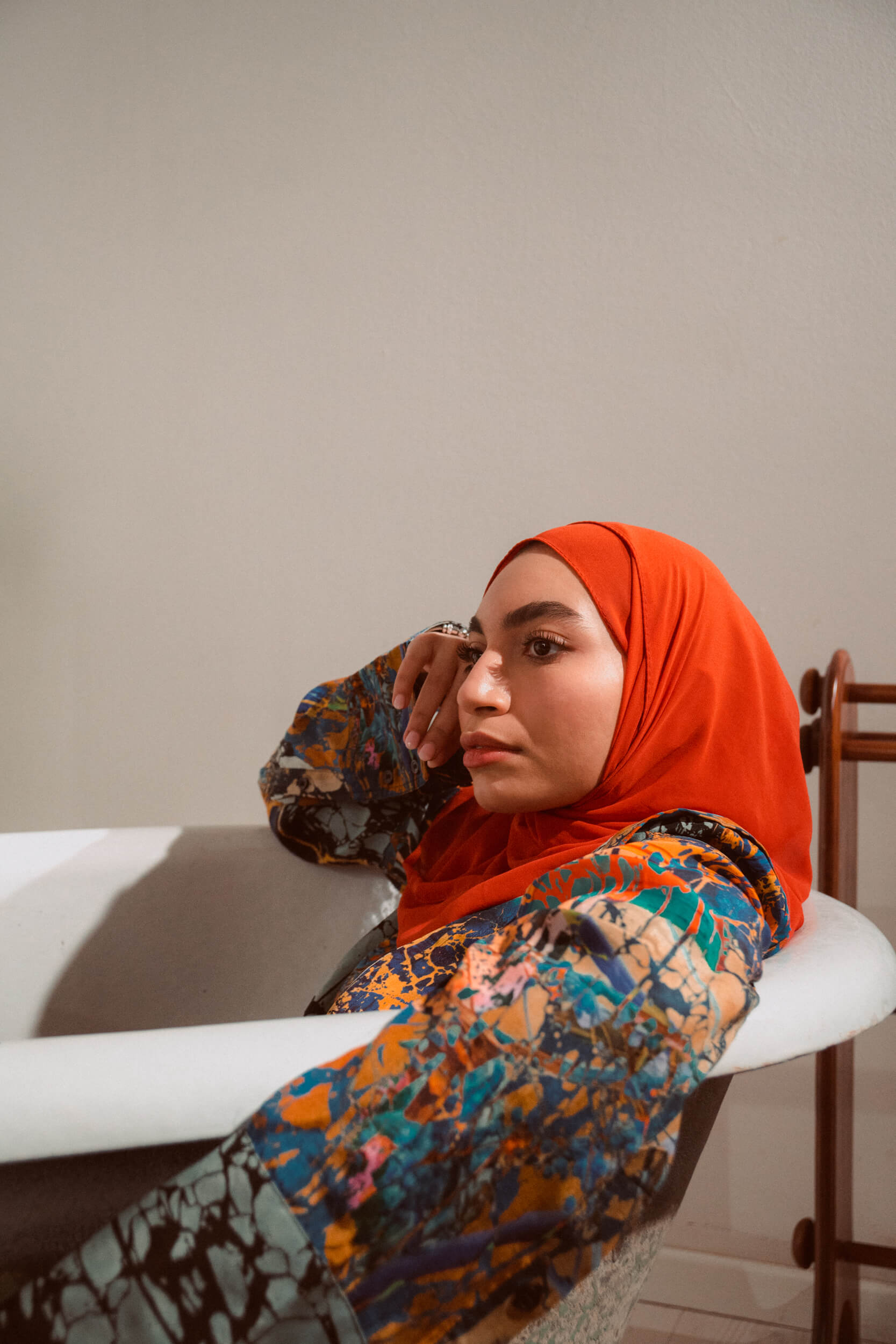
“Right now, I’m fine, I’m not in a wave, but it takes a lot of courage, I guess, or, more than courage, you need to find out what gives you strength.”
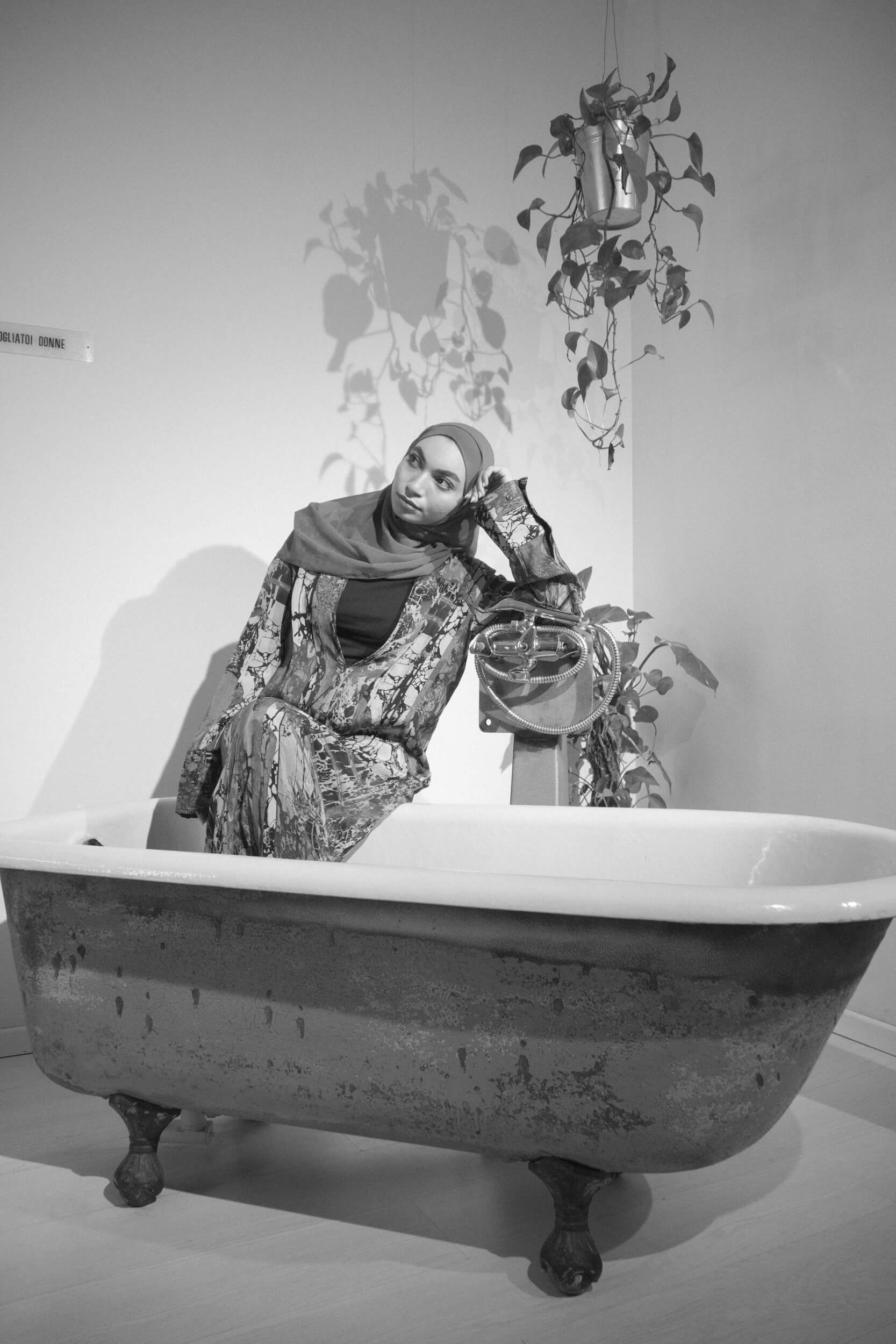
What are the clichés you hear the most and you’re tired of listening to and explaining?
I think that, unfortunately, some people still think about the veil as a form of sexist oppression, while the veil of nuns is thought of as a form of devotion to God. I was talking about this the other day with this girl, who’s Christian, and she was telling me that she thinks this kind of association exists because nuns make a huge sacrifice, they sacrifice their whole life to God. I, as a Muslim woman who wears the veil – but this is true also for those who don’t wear it, but are believers and practice the religion – have decided to show my religion through the veil, however, my religion gives me the possibility not to sacrifice my whole life, on the contrary, it allows me to live it, marry, have children, own a business, work, participate in my society, be active, do what I want, so it’s a minor sacrifice, for sure, compared to what nuns do, which, anyway, from the point of view of today’s society, it’s a more understandable sacrifice. So, there’s this connection between the veil and sexist oppression simply because Muslim men don’t wear any veil, but this doesn’t mean they don’t have some other rules to follow which, maybe, don’t apply to me.
On this matter, what was the first, or major thing that’s been imposed on you – by anyone, friends, parents, employers – you’ve rebelled against?
Women, since childhood – no matter what culture and society they belong to because I’ve heard these things from both Arab and Italian people – are told things like, “Girls don’t do this, don’t do that…”. To all these impositions that came from the fact that I was a girl, I used to react quite sourly. Are you telling me not to cut my hair because I’m not a boy? I shaved my head. There’s no middle ground with me, if someone tries to impose something on me, I’ll do the opposite. That’s why I used to be so boyish as a kid, I always dressed like a boy, I behaved like a boy. However, later on, I learned to accept my femininity and understood that, if I want to be feminine, this doesn’t mean I can’t be strong, independent.
All those qualities you commonly attribute to masculinity have nothing to do with being masculine; I can be extremely feminine with a skirt, all dressed in pink, and still be strong, I can keep on being feminine and whatever is attributed to the masculine gender, at the same time.
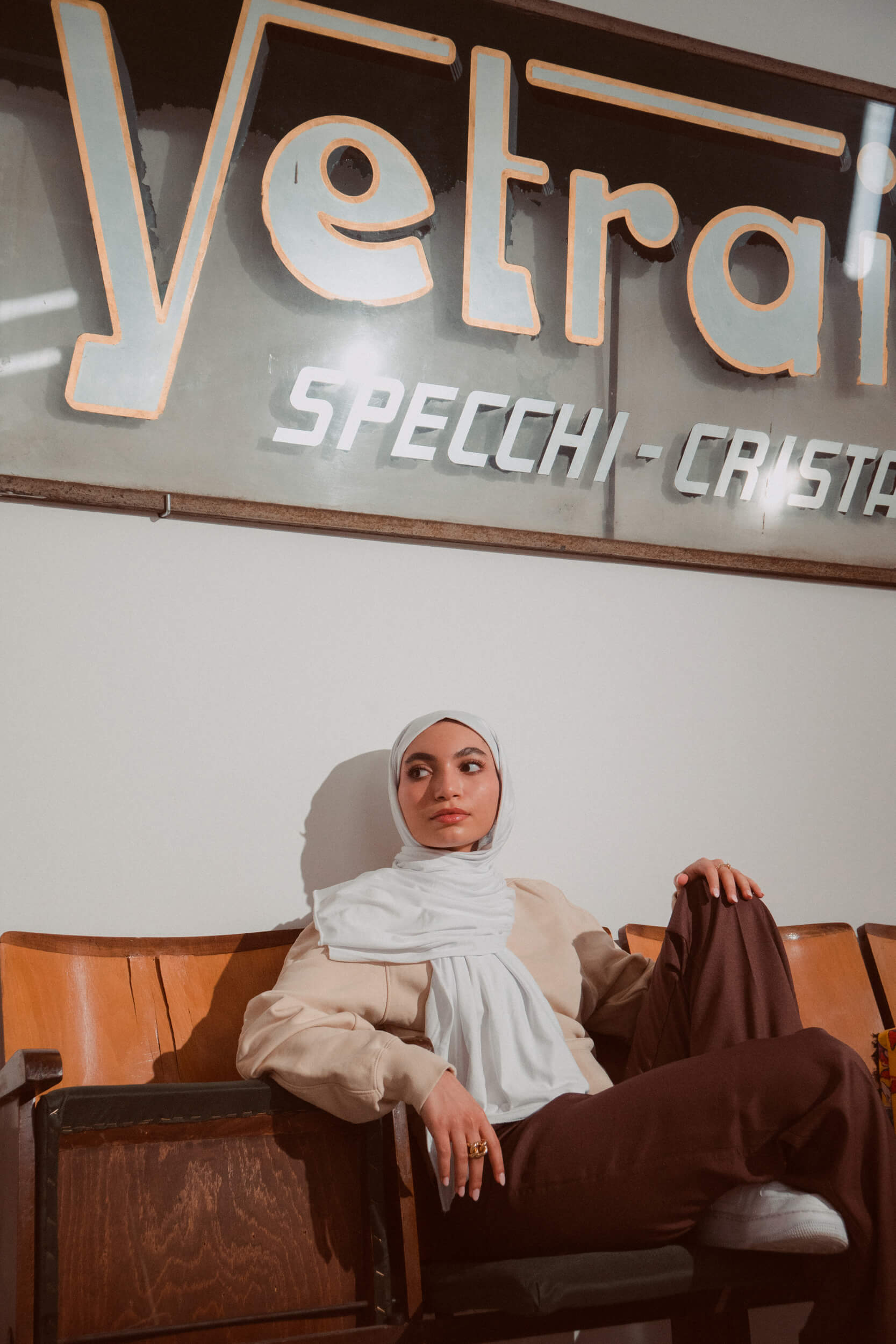
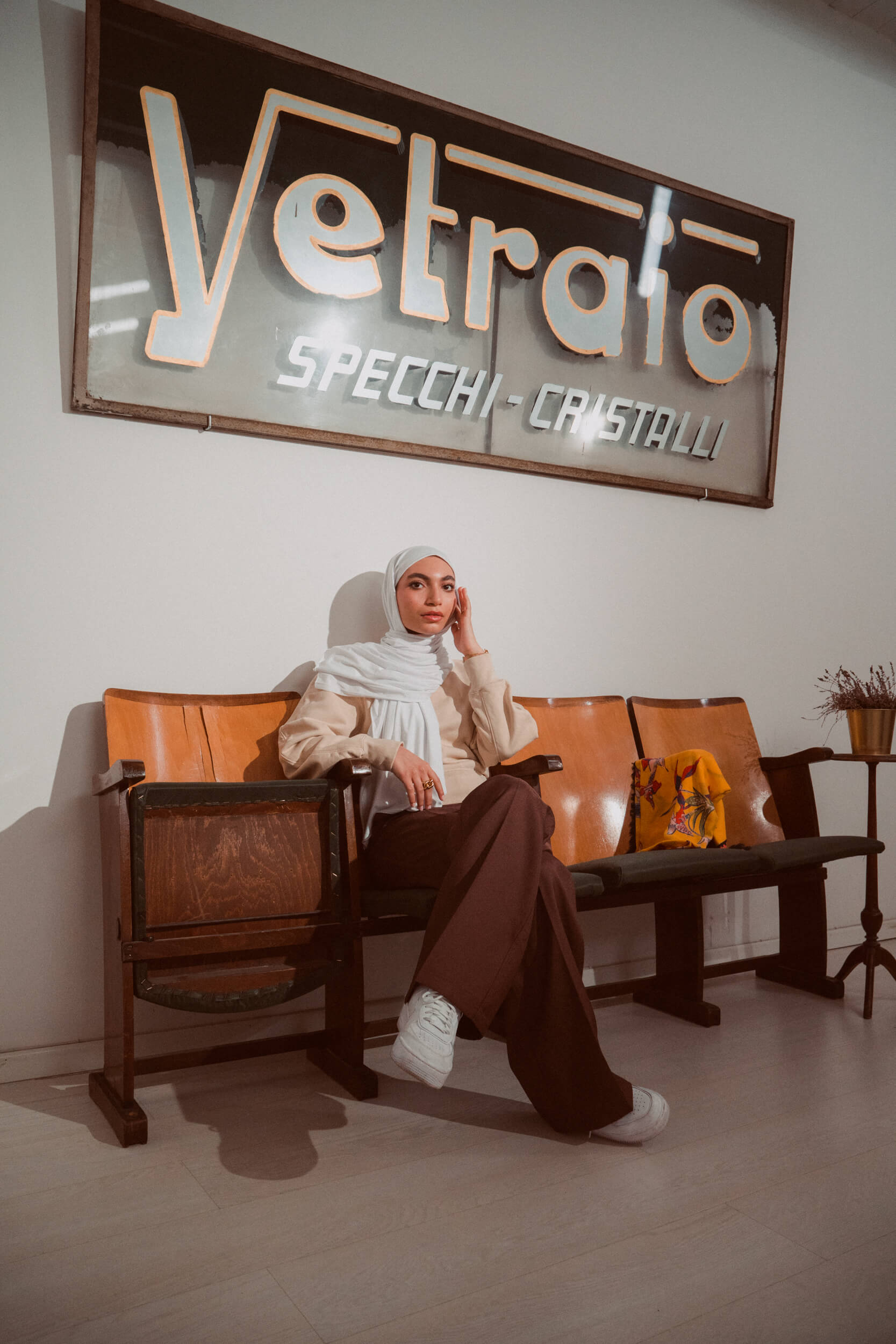
Loss can manifest itself in completely different ways: you can lose a job, someone close to you, or it can be the end of a relationship, a friendship. Have you ever experienced loss, or have you ever had to deal with it?
This is probably the most difficult question for me because, again, one thing that people who follow me on social media don’t know, as I always tend to separate my private life from my public life, is that last summer I lost a very dear member of my family, due to Covid: it was the first time we faced loss within the family, and it was the hardest time I’ve ever lived in my whole life. Obviously, on social media, I’ve not been active during that time, for about a month, and this is the first time I talk about it. I’ve never talked about it before because I don’t know if you ever stop trying to get over this thing, you never stop trying…
In my personal experience, this kind of pain evolves in your life, in its various stages, but it always stays there.
Are you afraid of failure? Or do you think that failure should be legitimized?
I’m such a perfectionist [laughs]. Before starting something, I already know that either I complete the task and do it the way I want to do it, or I just don’t start it. Obviously, that’s not always the case because you don’t get to decide how life goes. Usually, when I fail in the work field, I actually just deal with it, I go on, there will be other opportunities, I don’t hold a grudge because it would make no sense. Maybe, what gets me the most is “failure” in the traditional sense of the word. What I do today is not a traditional job, maybe the only traditional thing I do in my life is going to university, so that kind of failure, like when I don’t pass an exam or things like that, I take it too badly. Then again, it’s not so terrible, but I take it as a matter of pride! [laughs]
You currently have this platform where you discuss very important topics and you also give hope to many people who, maybe, are not used to hearing about these issues, probably because they’re in a family or school situation which doesn’t allow them to see further. Have you ever considered an evolution of your platform? How would you want it to happen?
I hope I’ll always get to have the possibility to express my opinion in front of an audience who’s willing to listen, and I hope I’ll always get the possibility to give voice to those whose voice has been silenced, myself in the first place. I hope in an increasingly positive evolution, I hope to witness real changes in society, I hope that my platform will evolve, too. Furthermore, I’m an extremely creative person, full of ideas, I want to make documentaries, write, get things published.
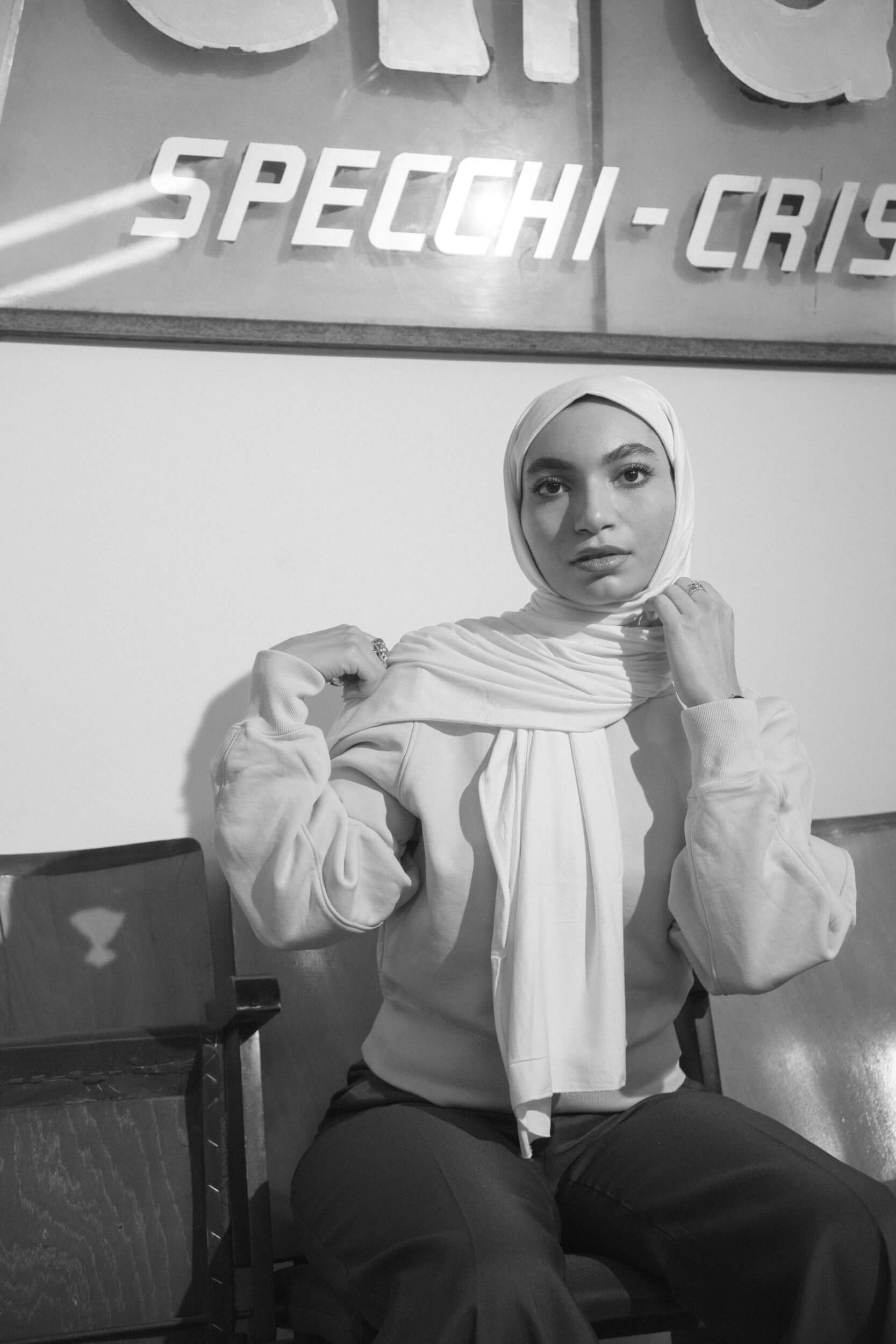
Photo & Video by Johnny Carrano.
Follow Aya here.

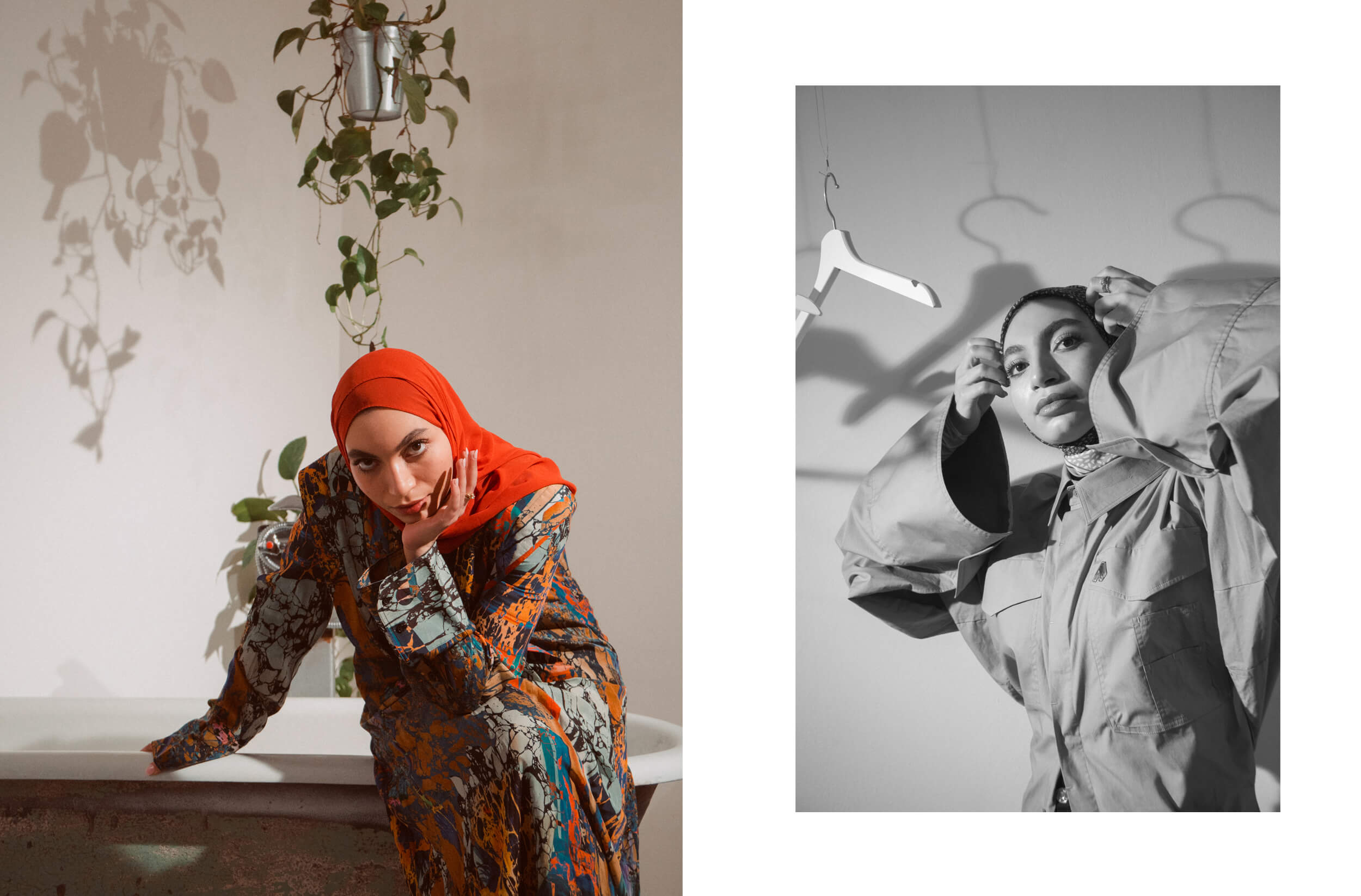
![Interview with Dr. George Gaitanos [Chief Operating and Scientific Officer of Chenot]: Giving meaning to time](https://www.theitalianreve.com/wp-content/uploads/2025/04/LAlbereta-dalla-Vigna-Leone-300x200.jpg)
